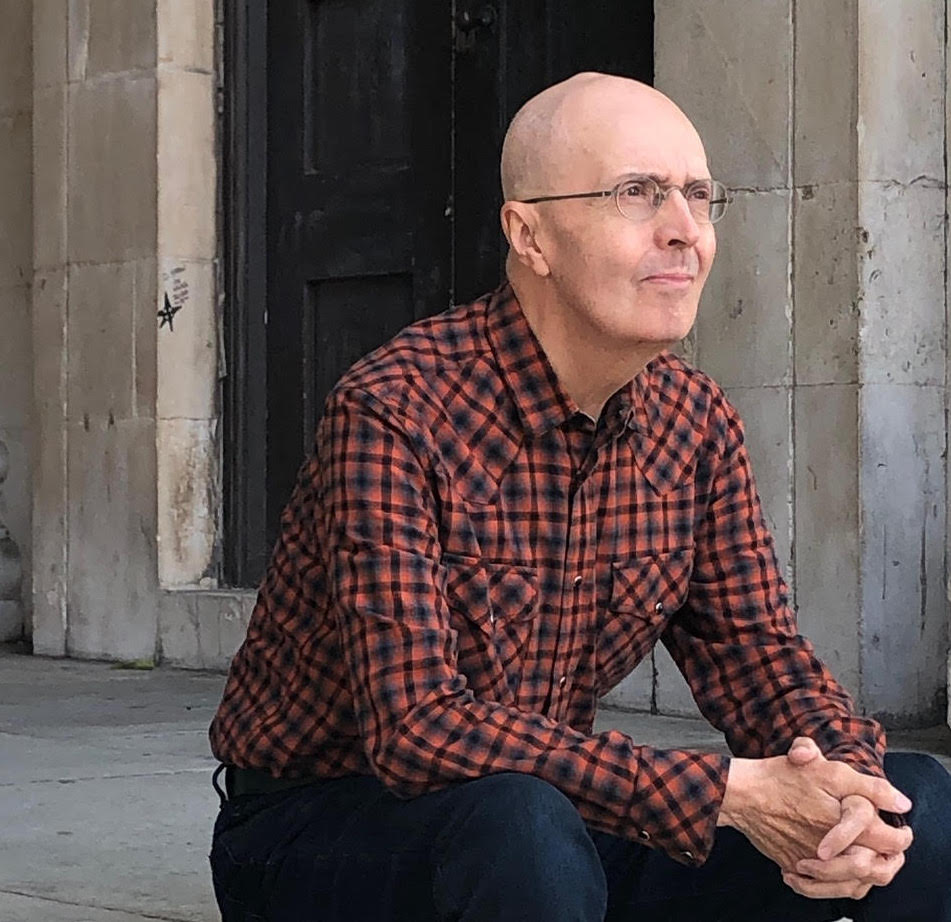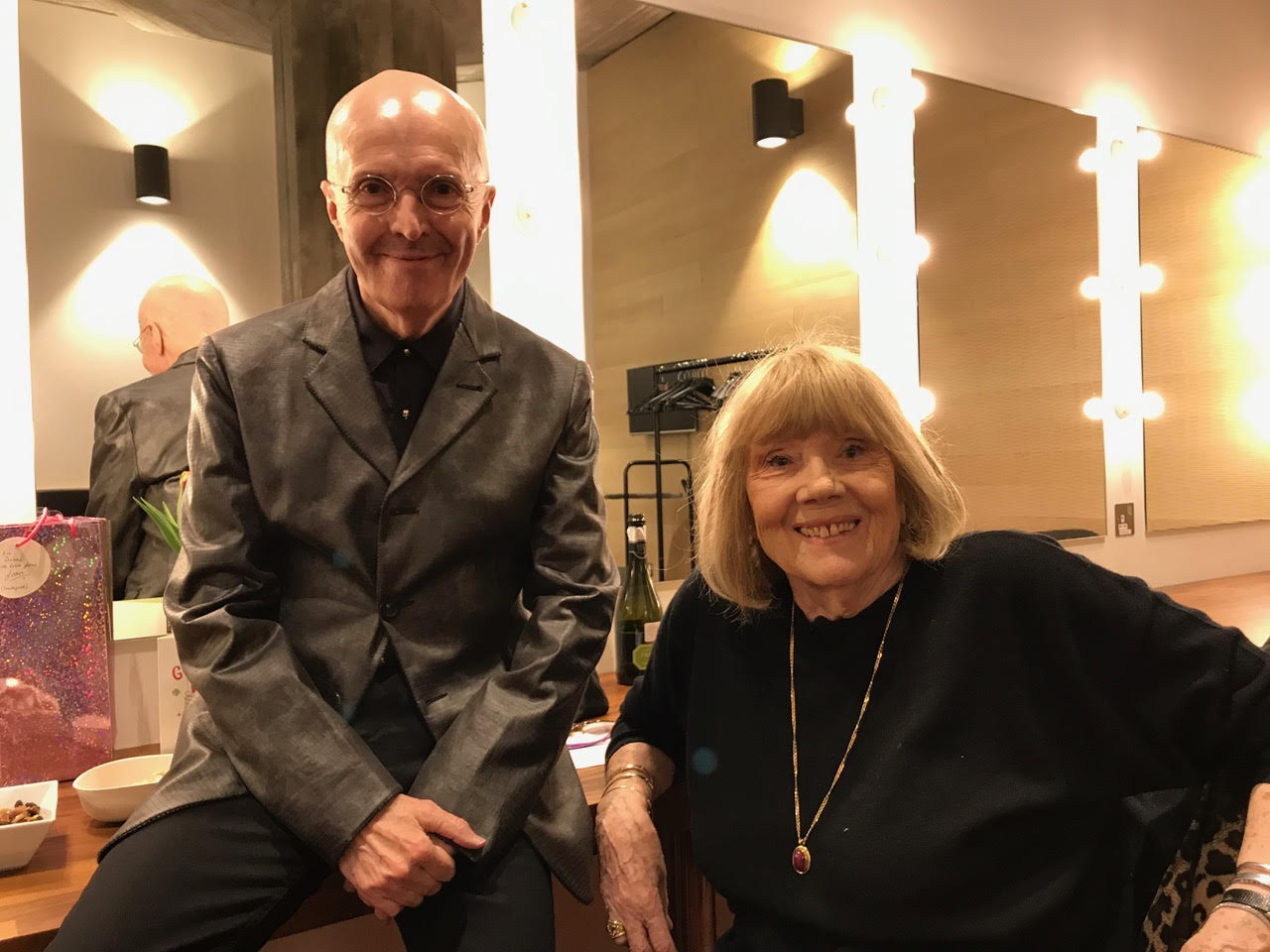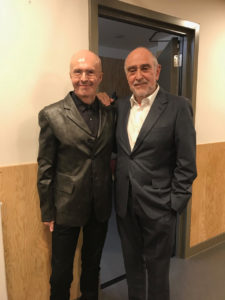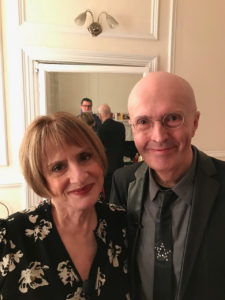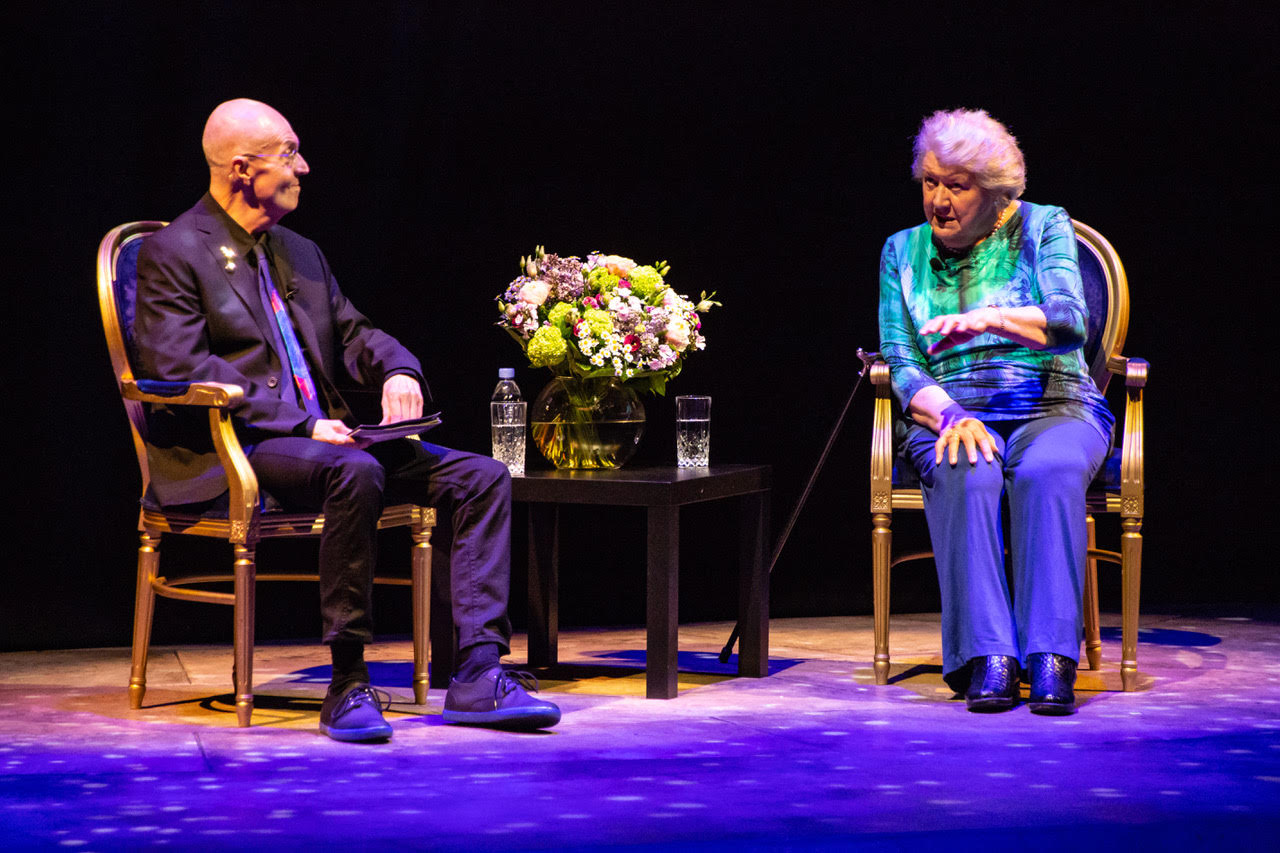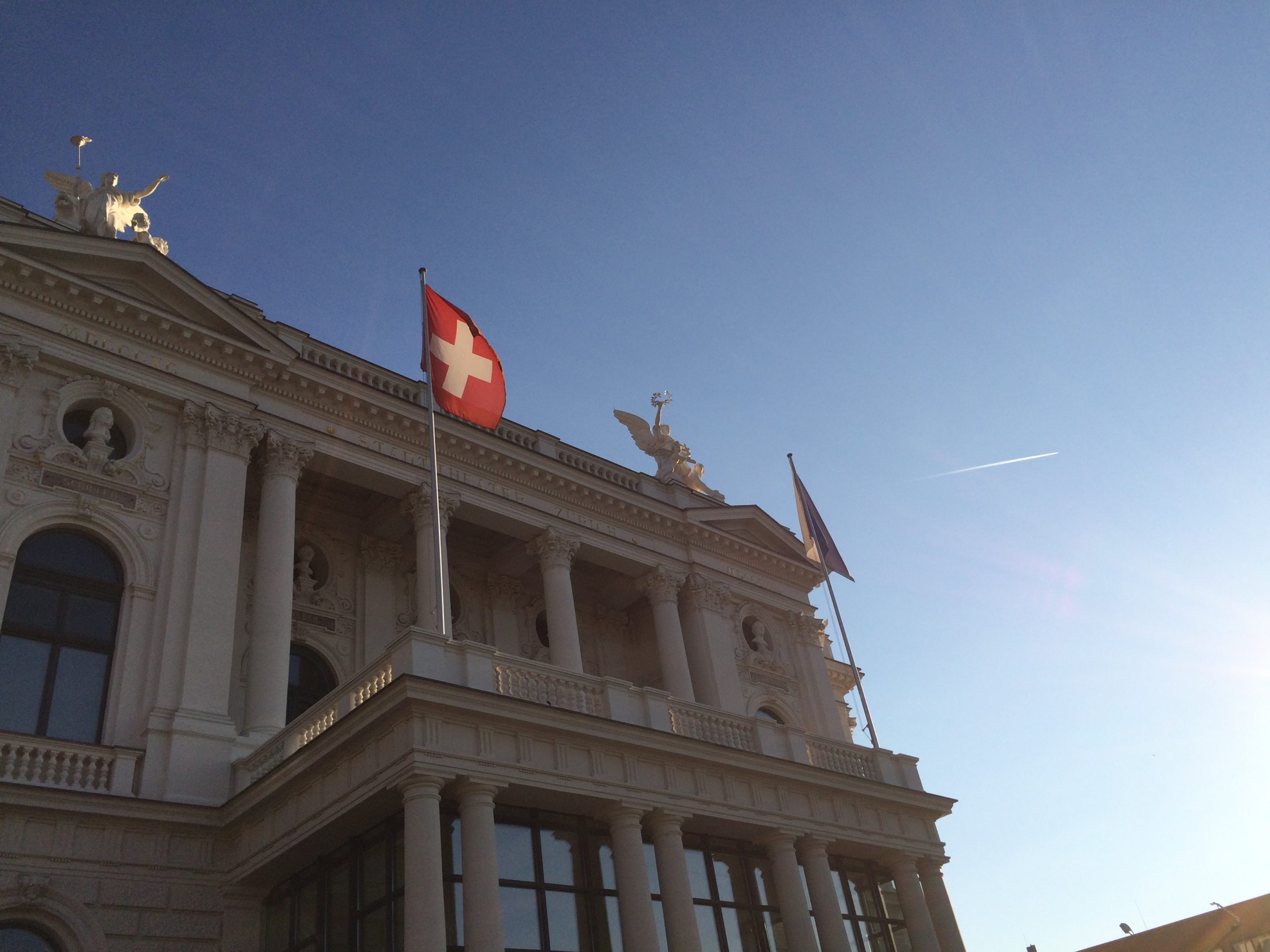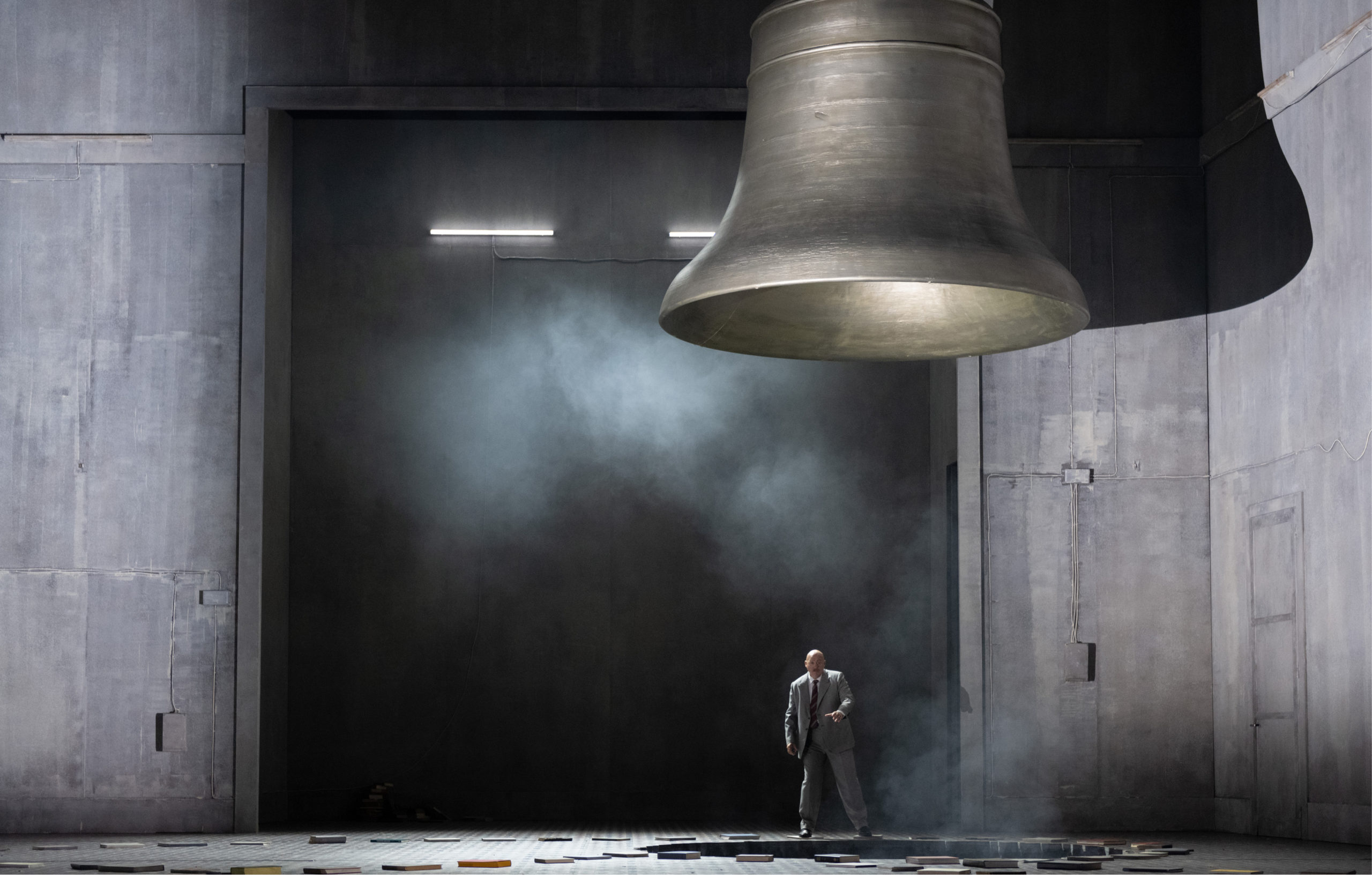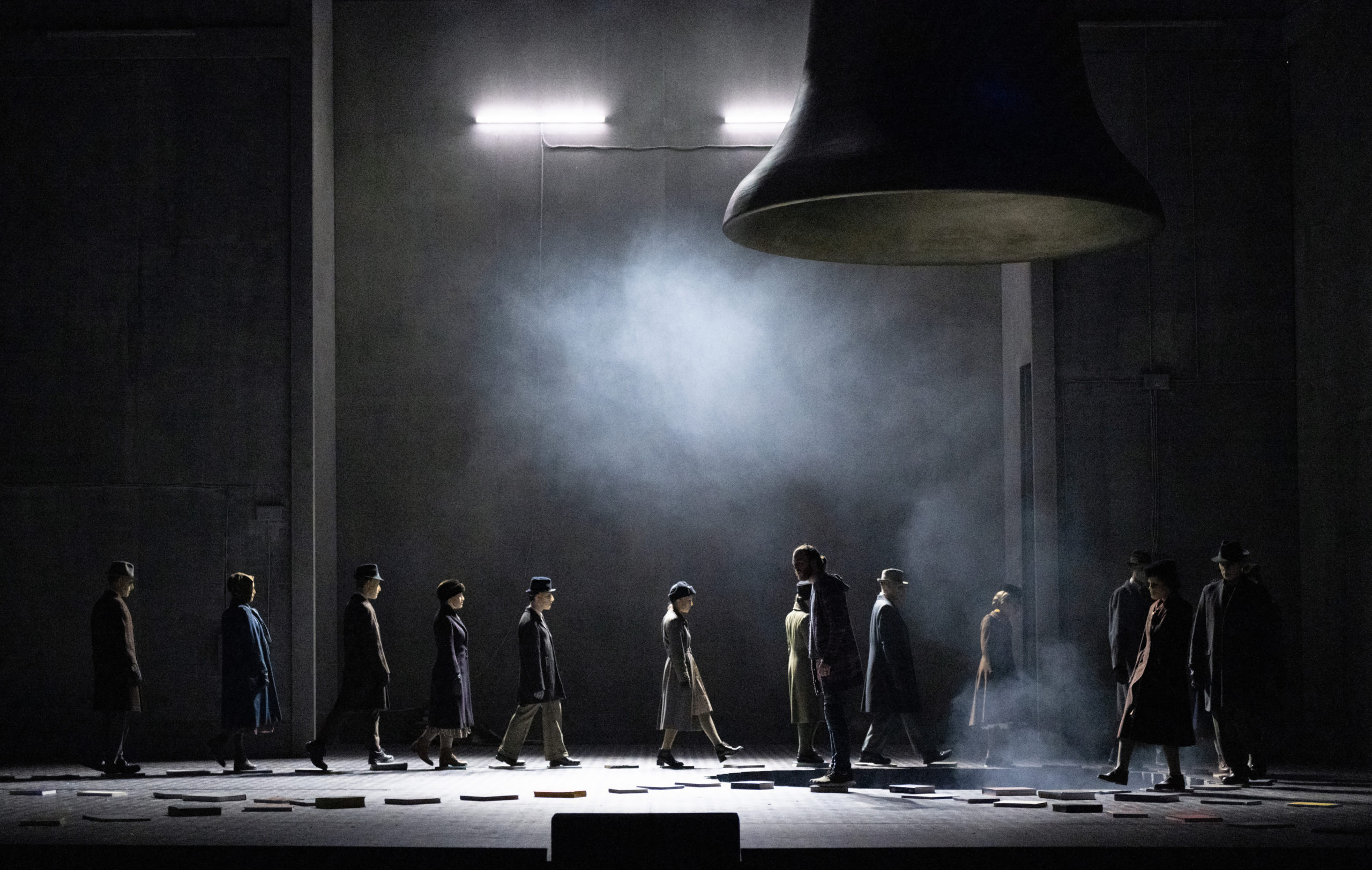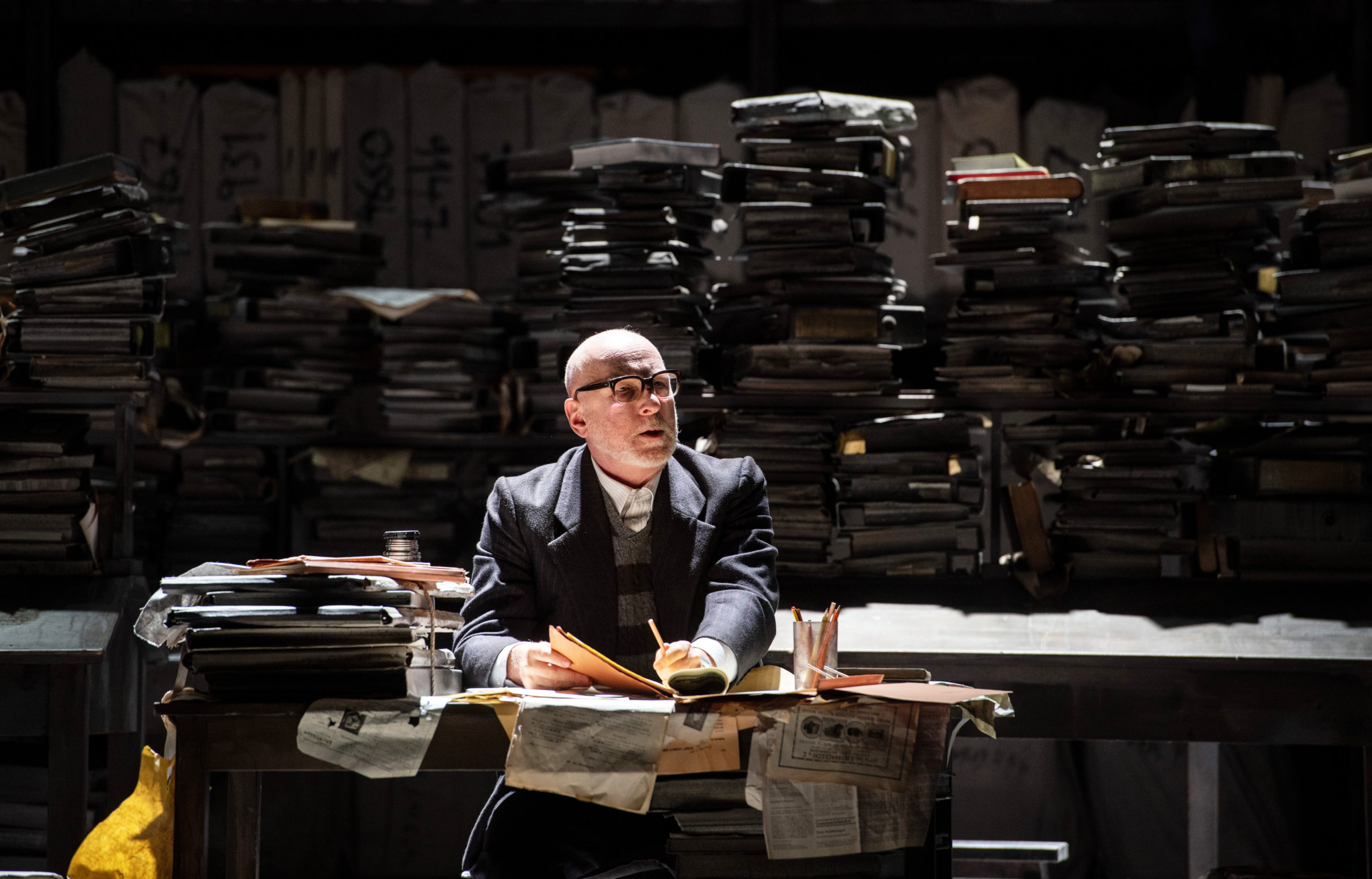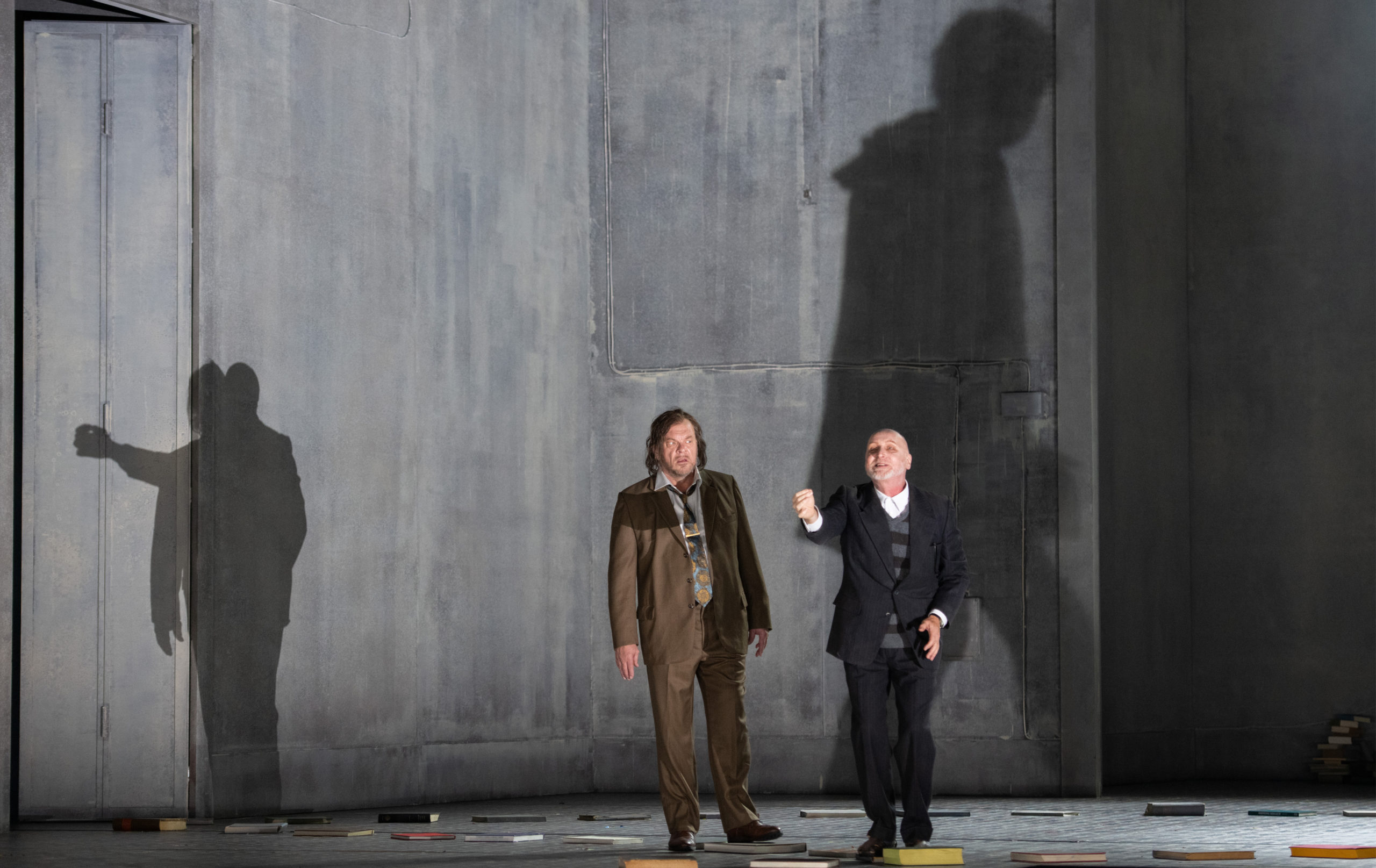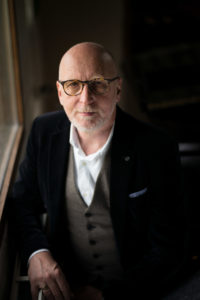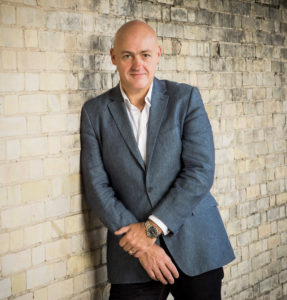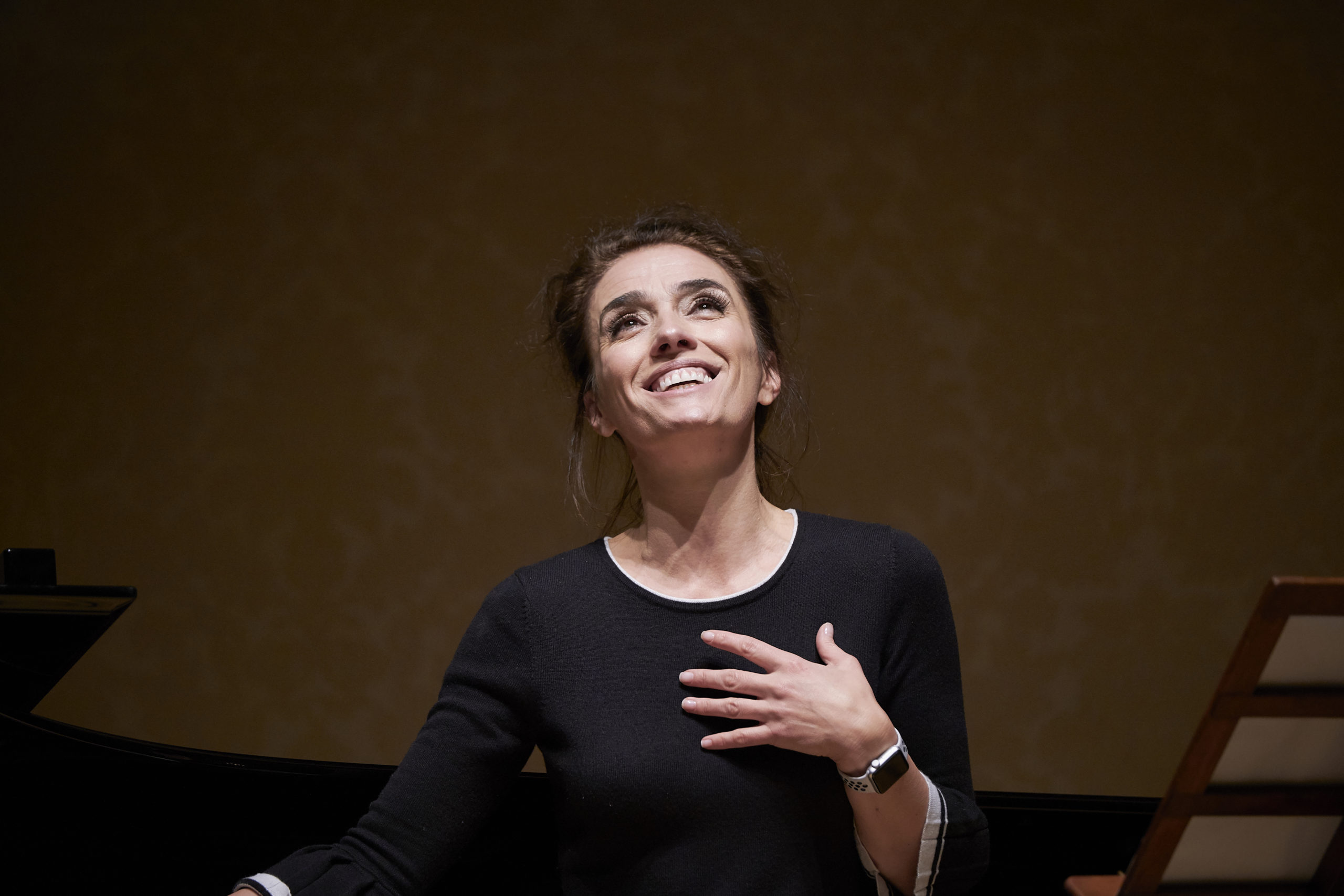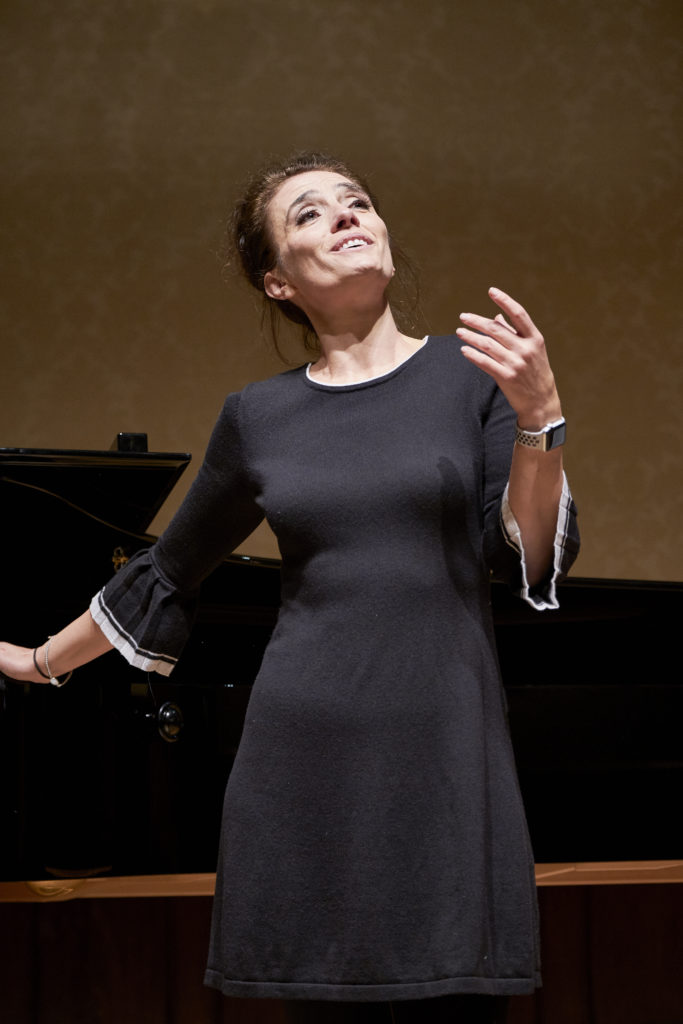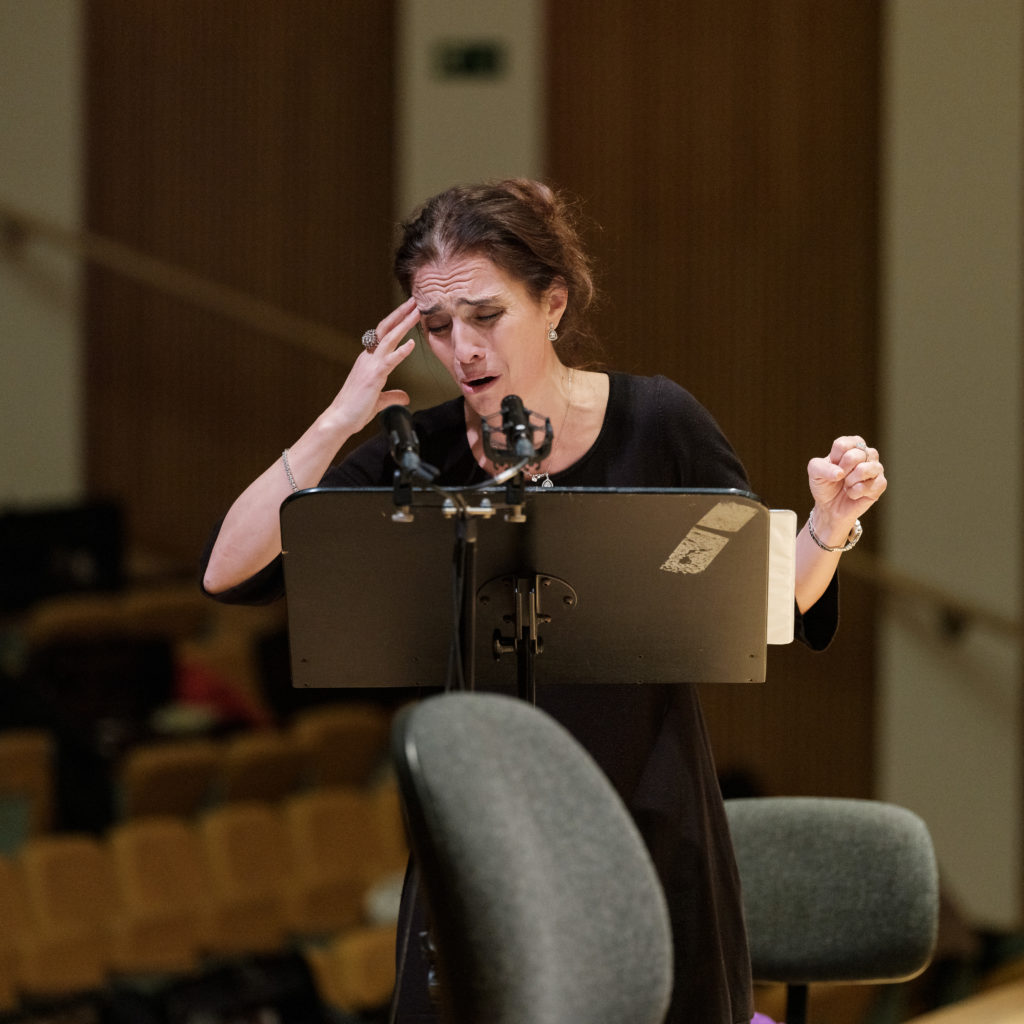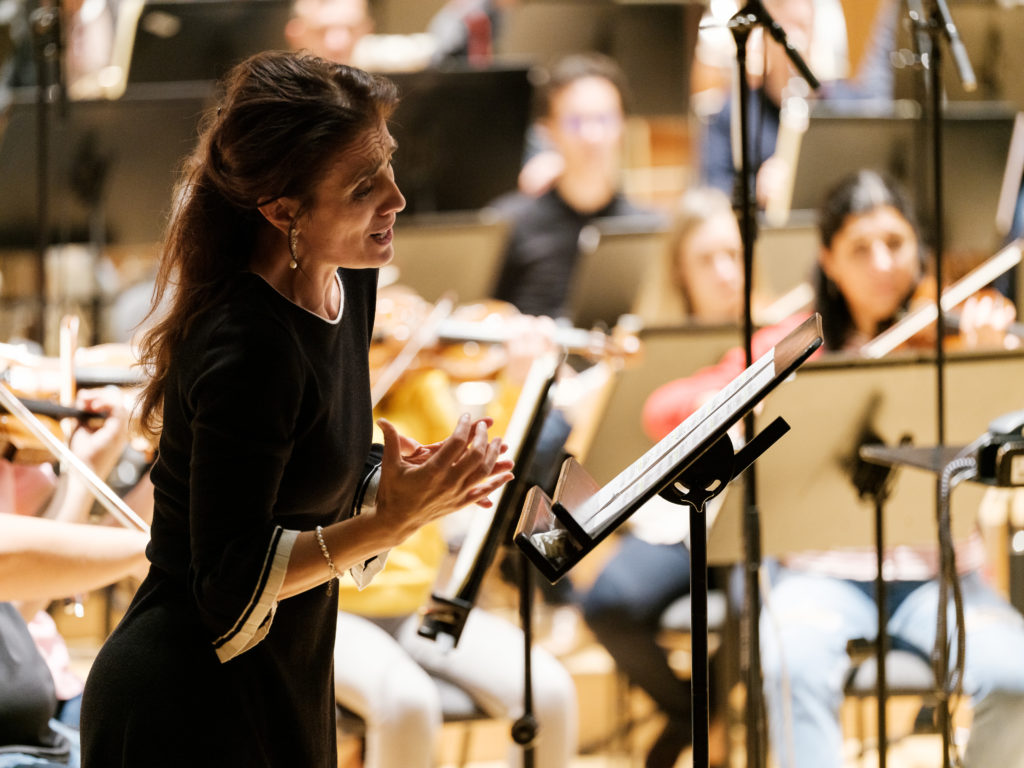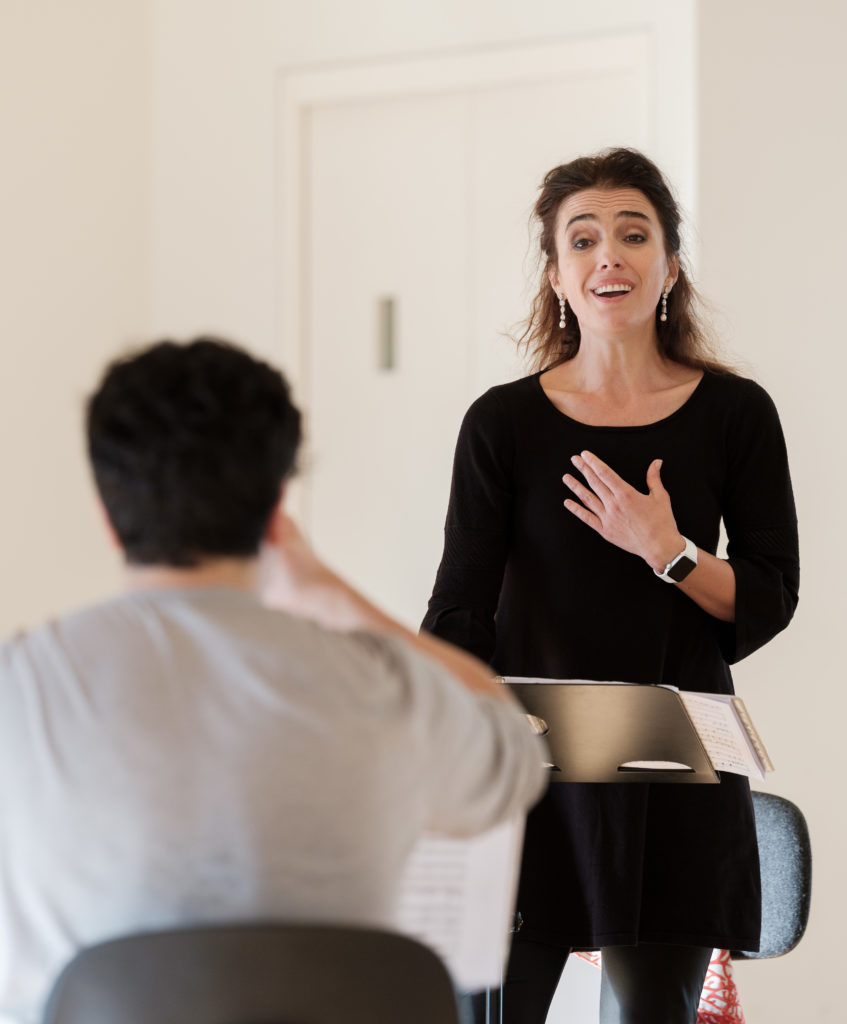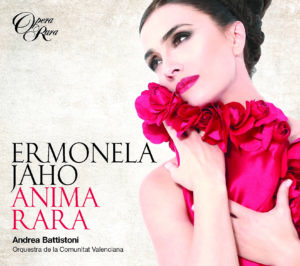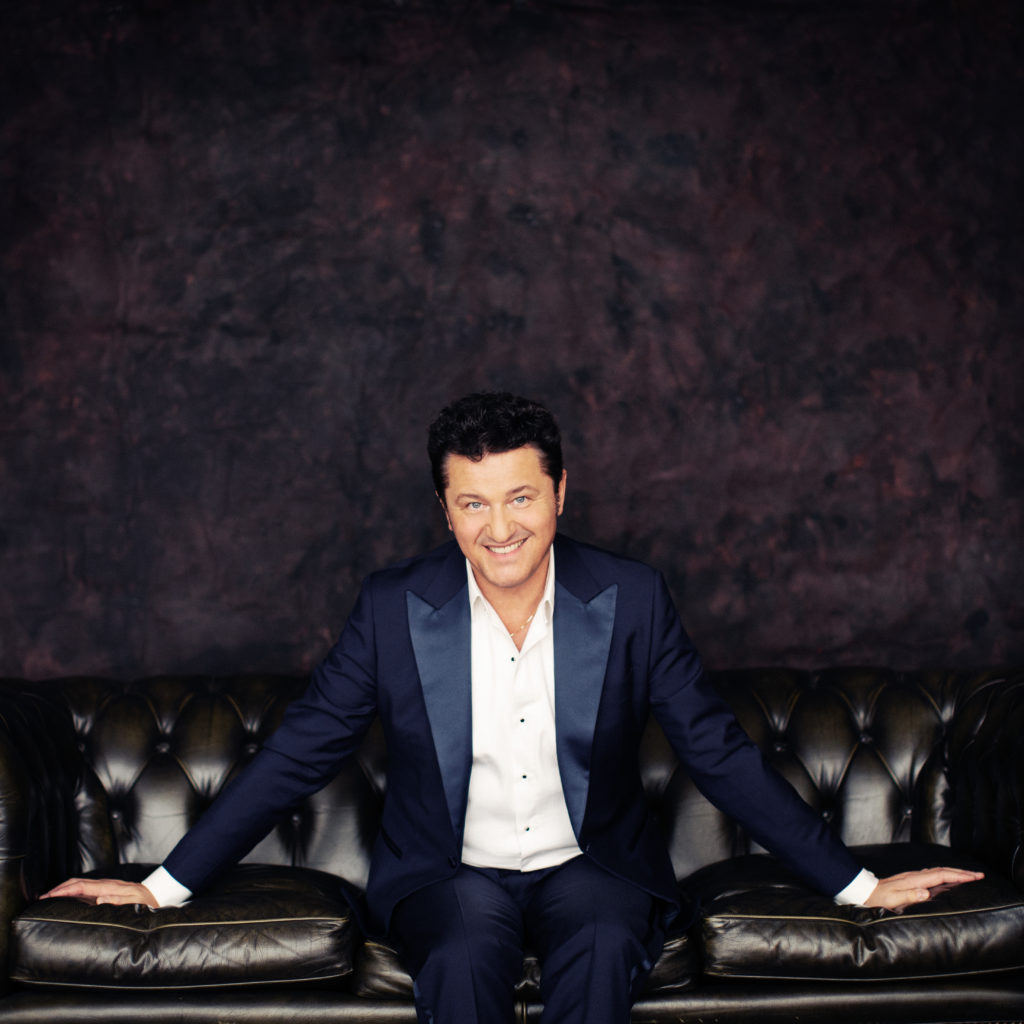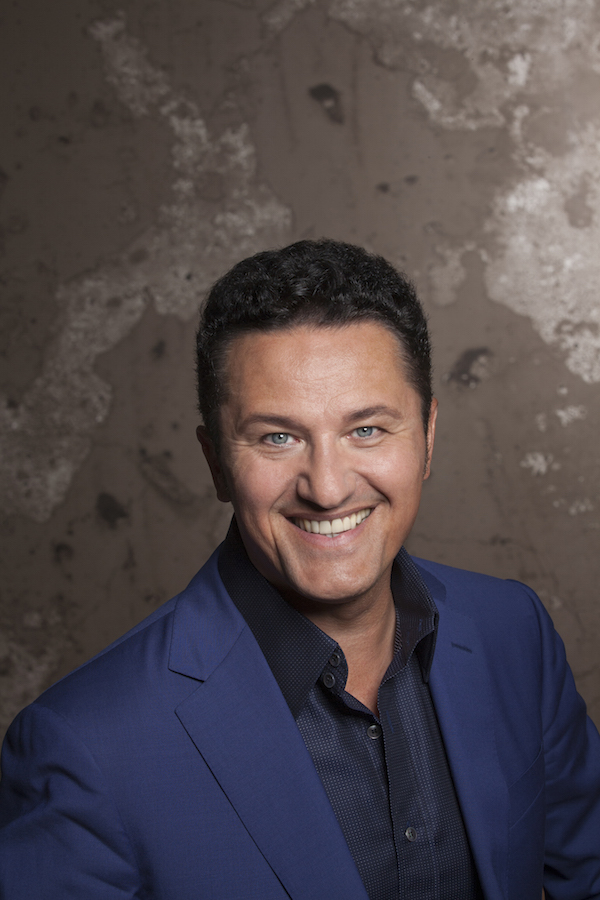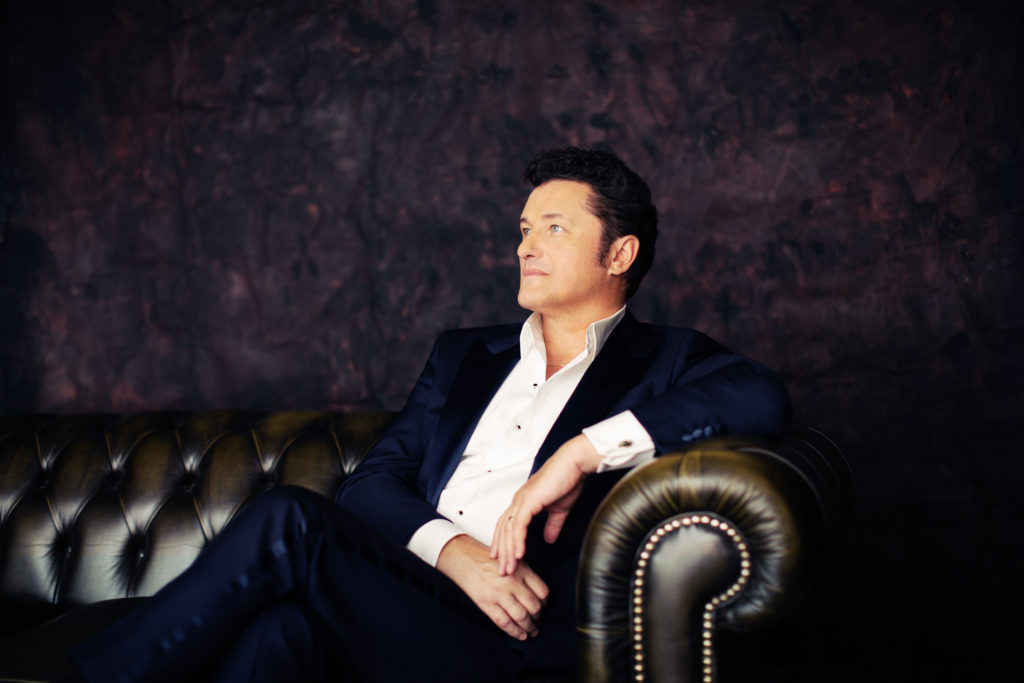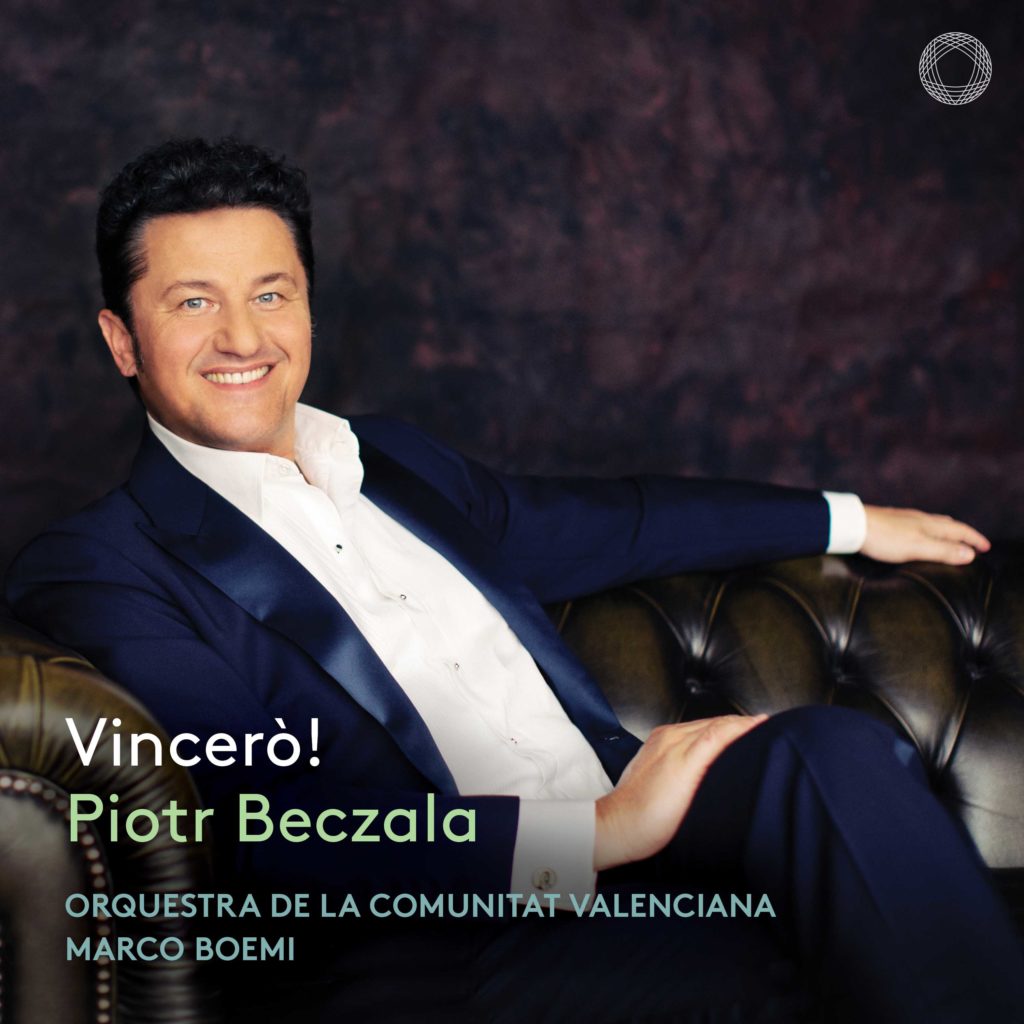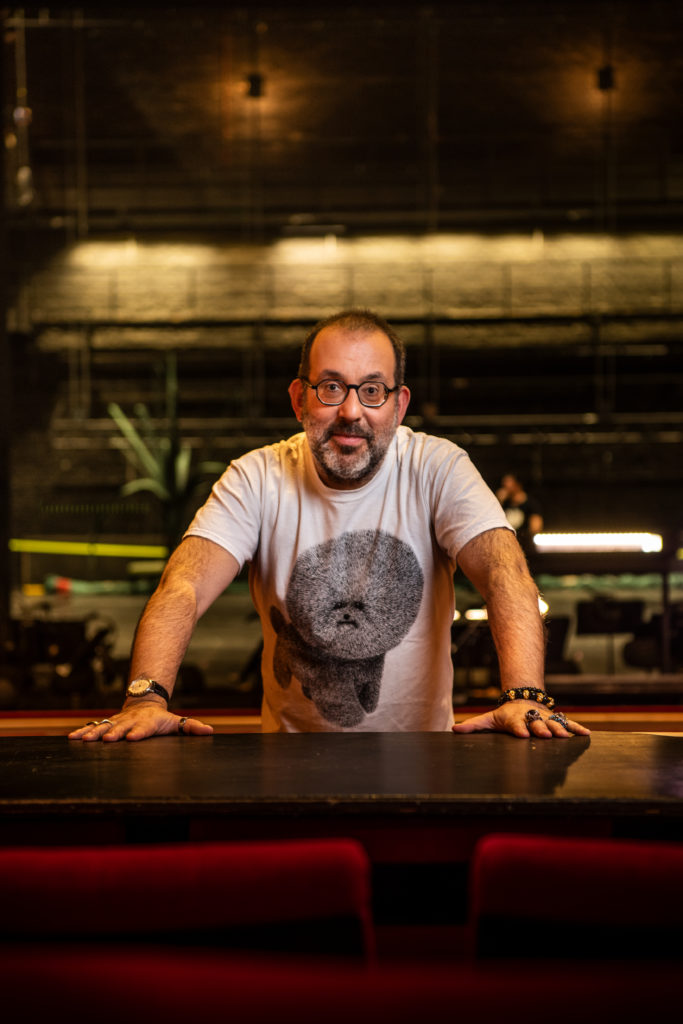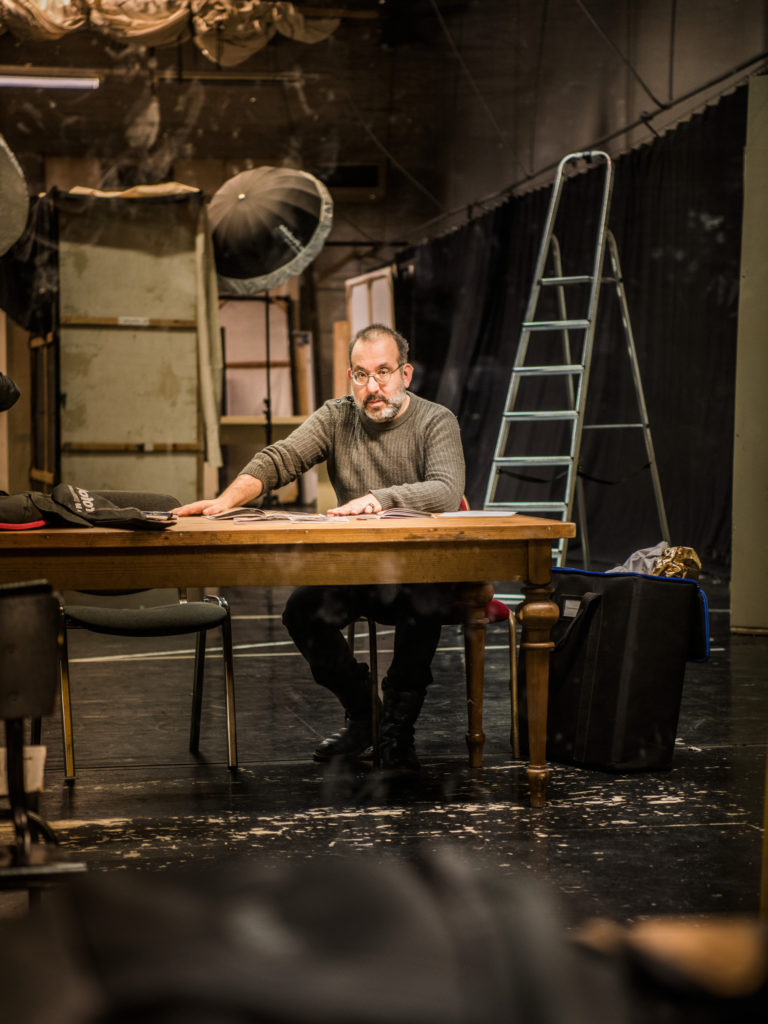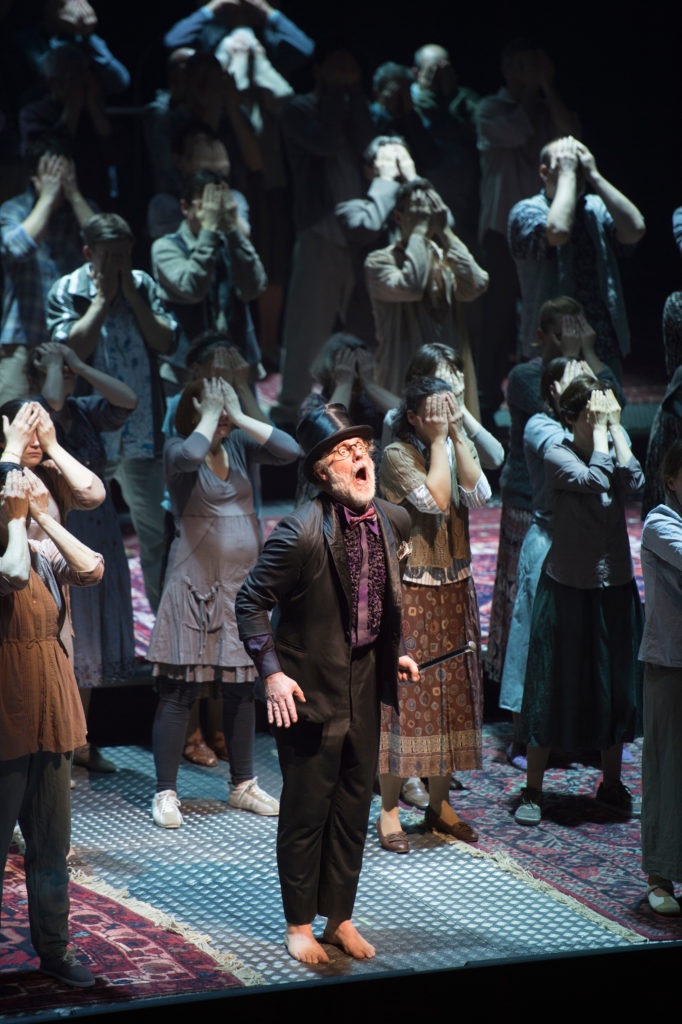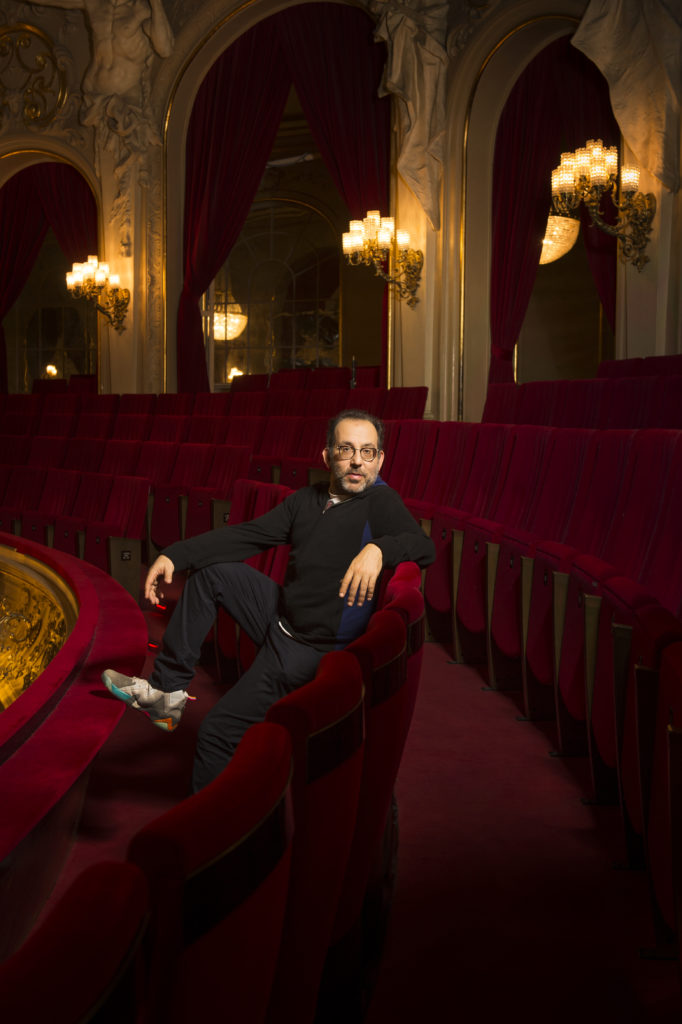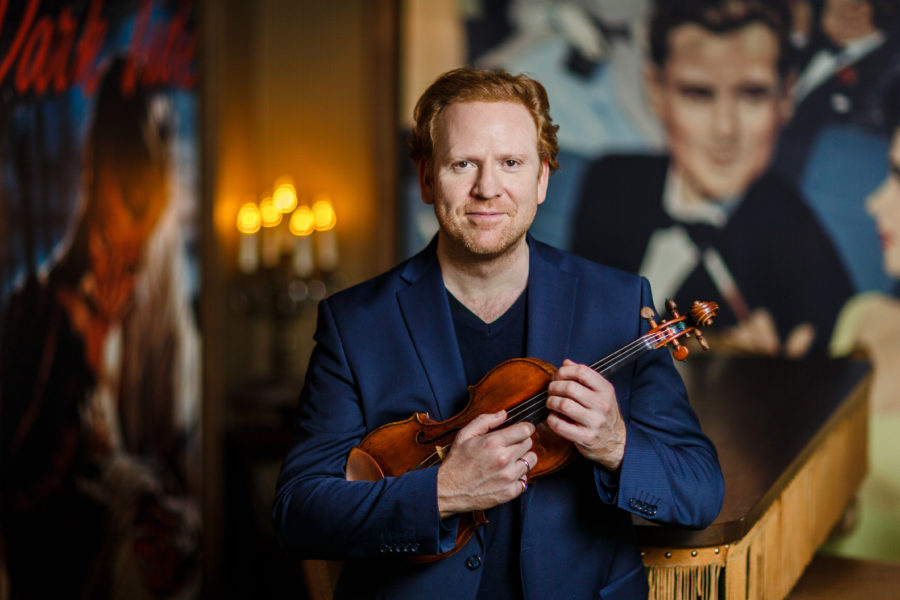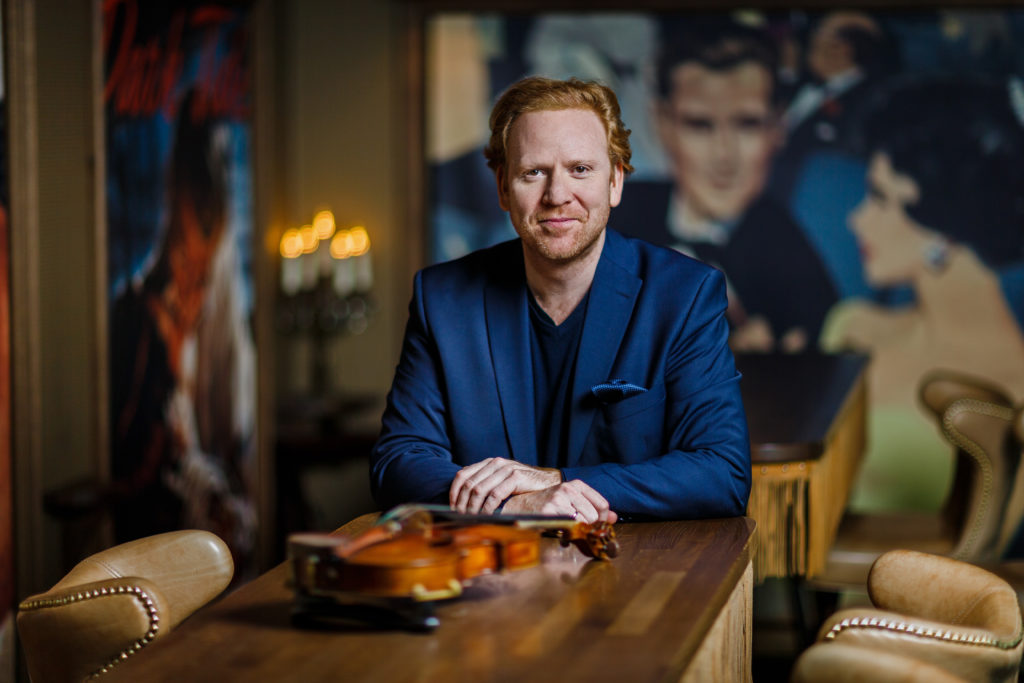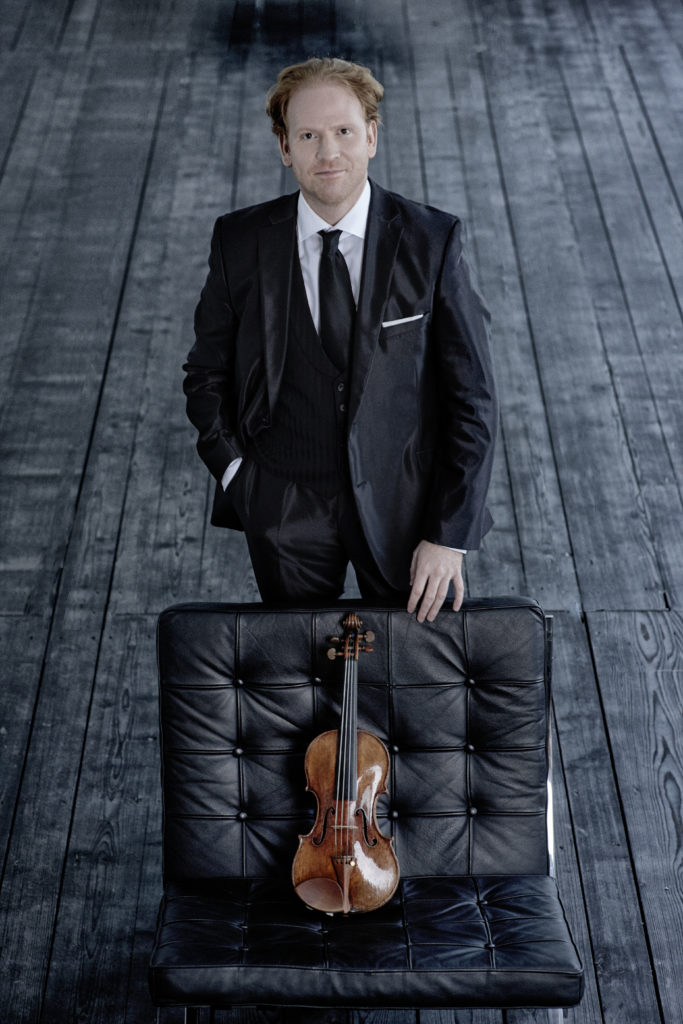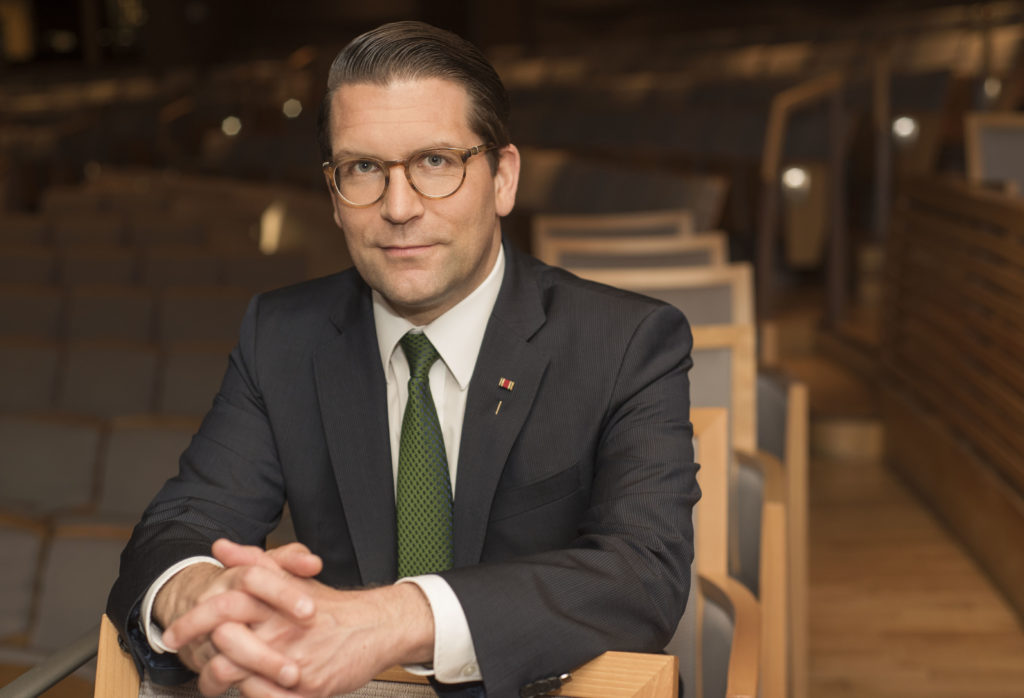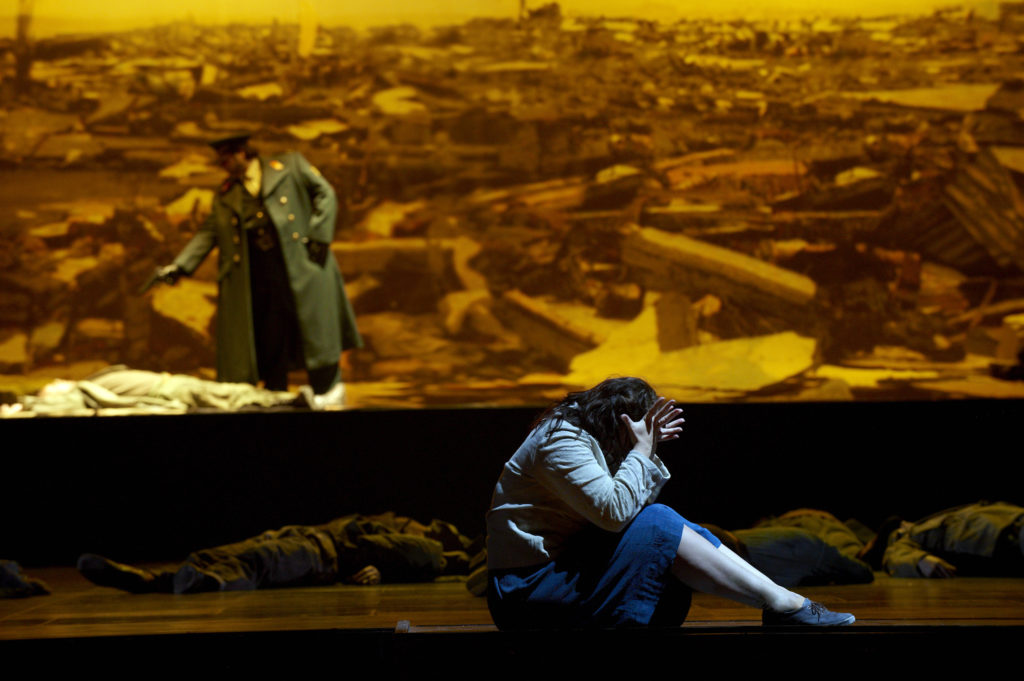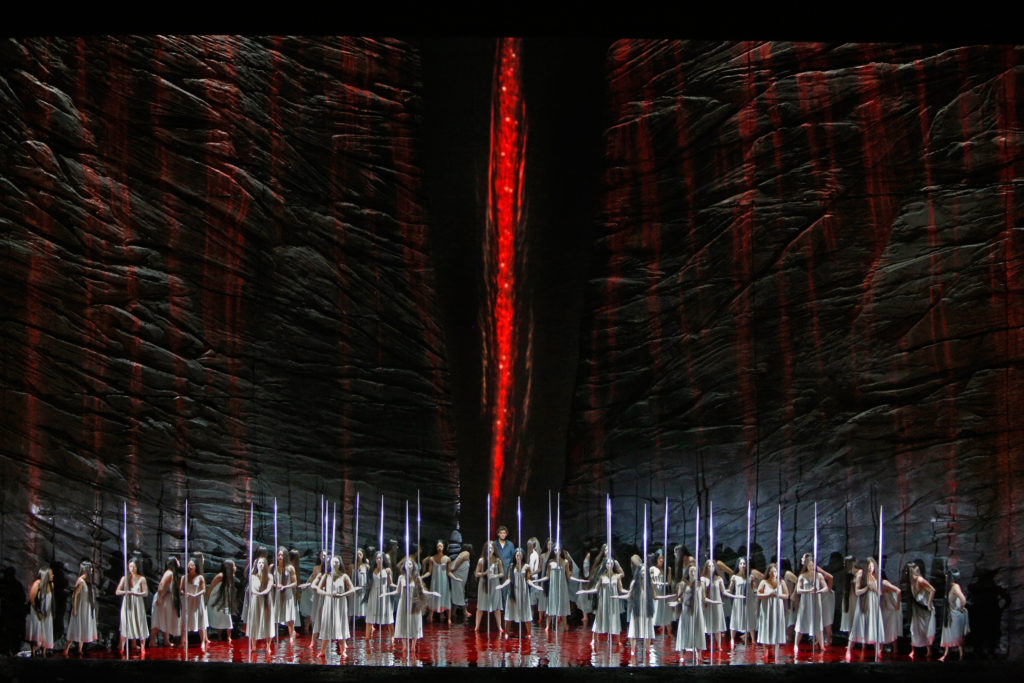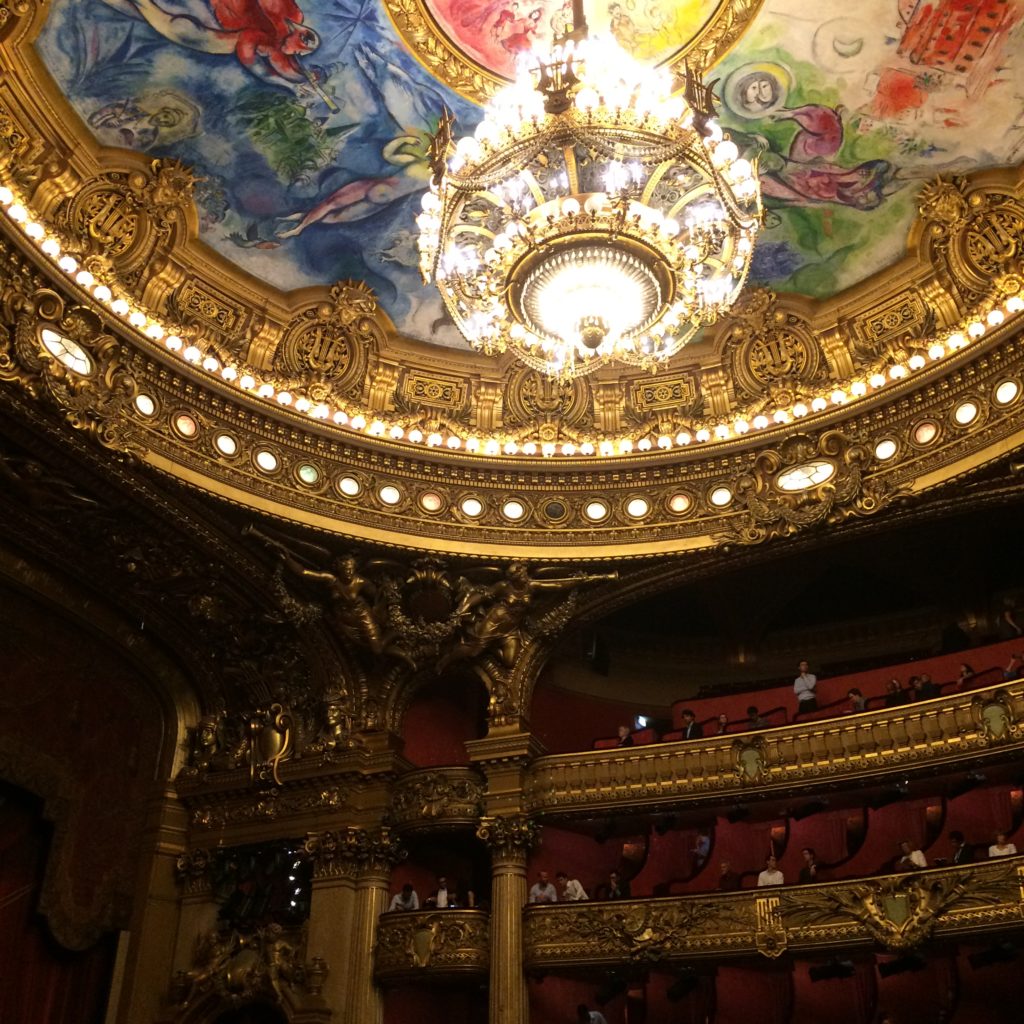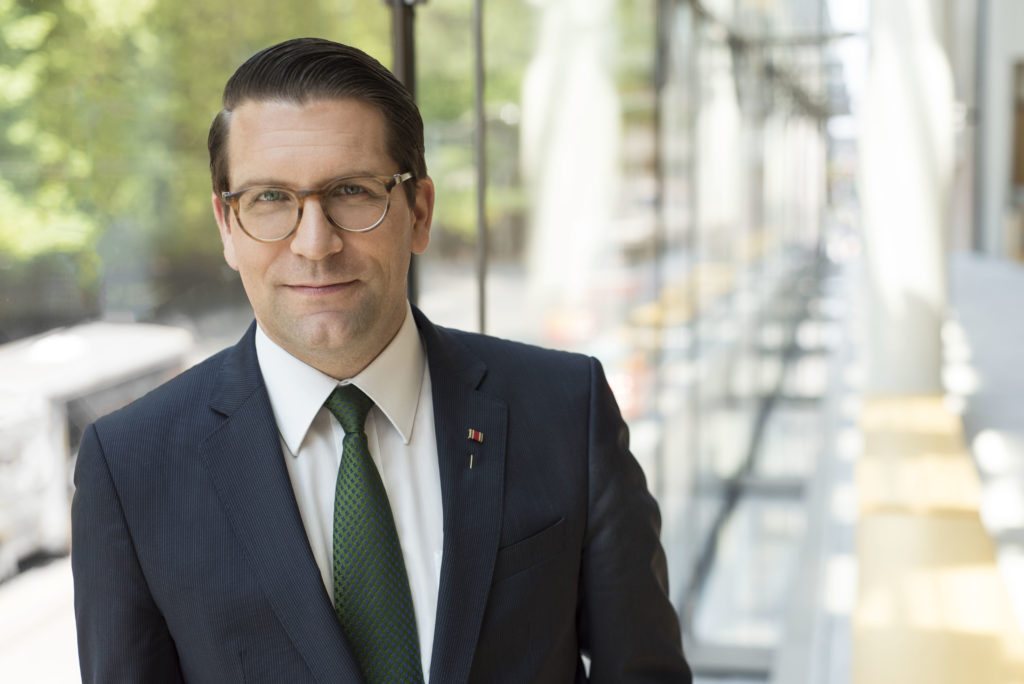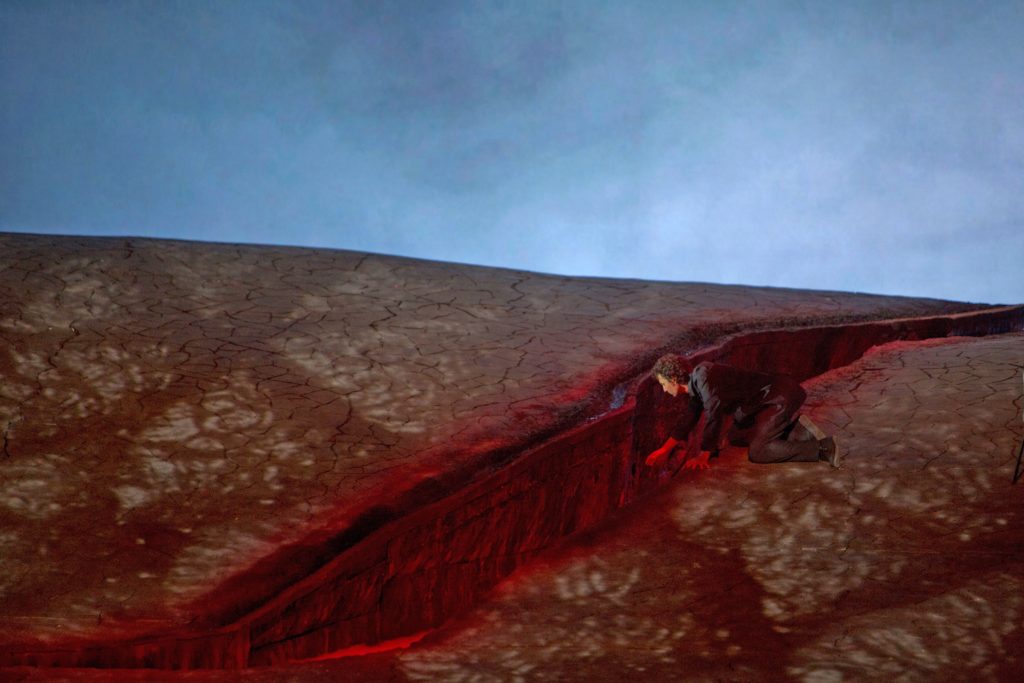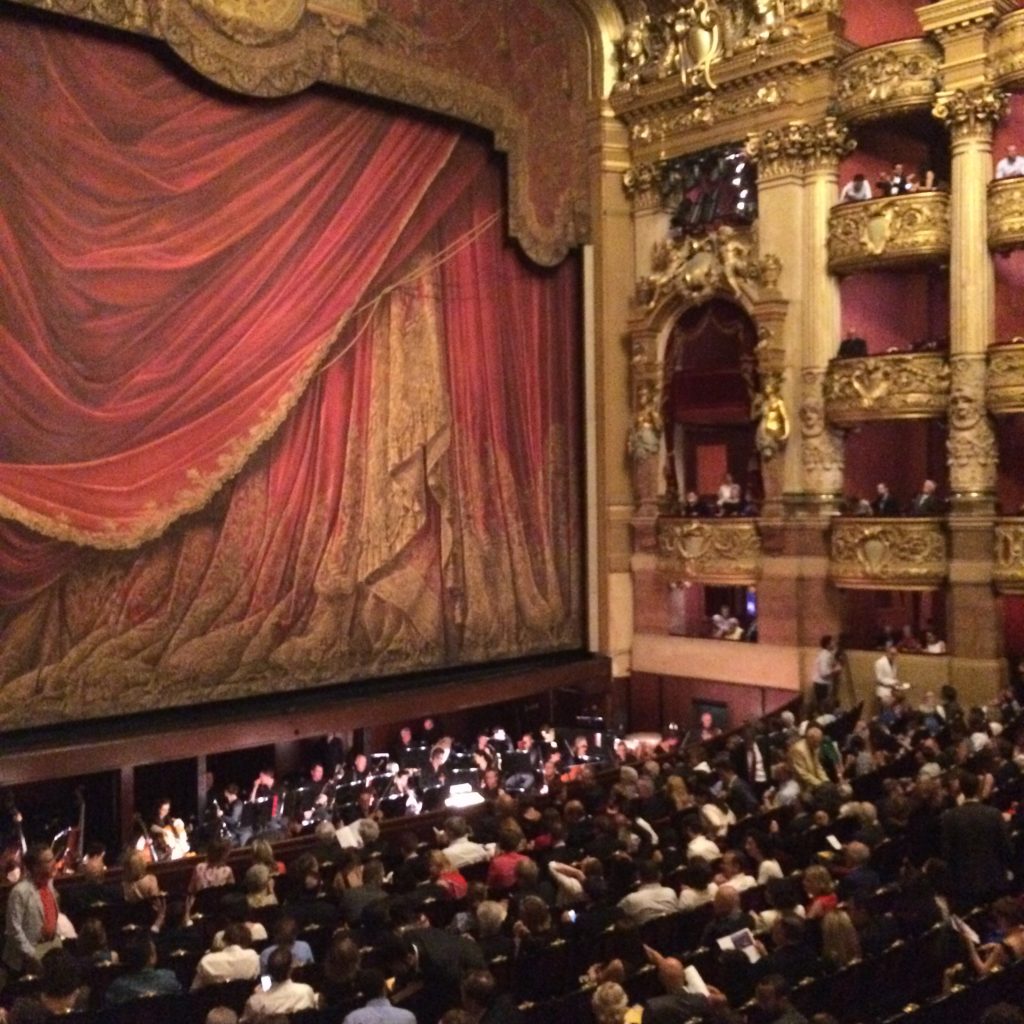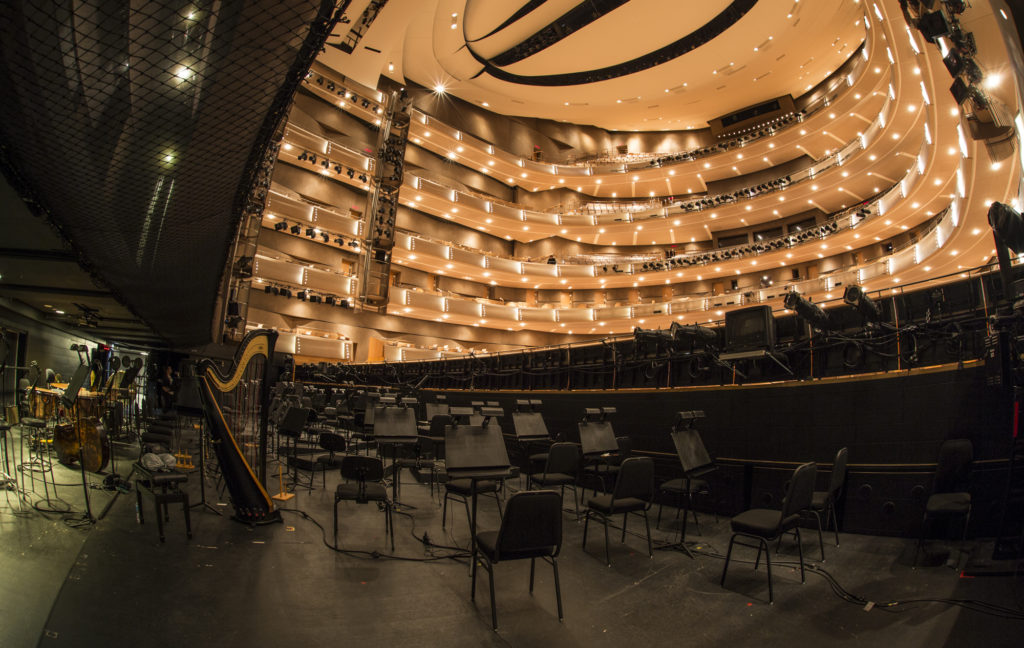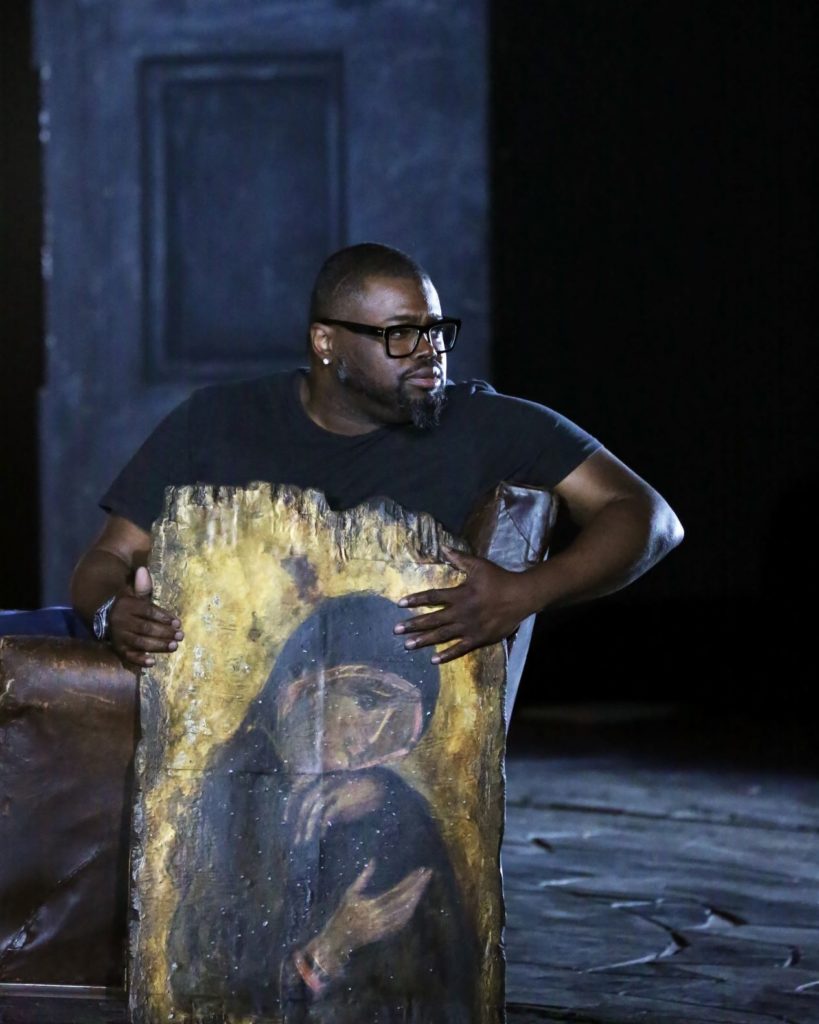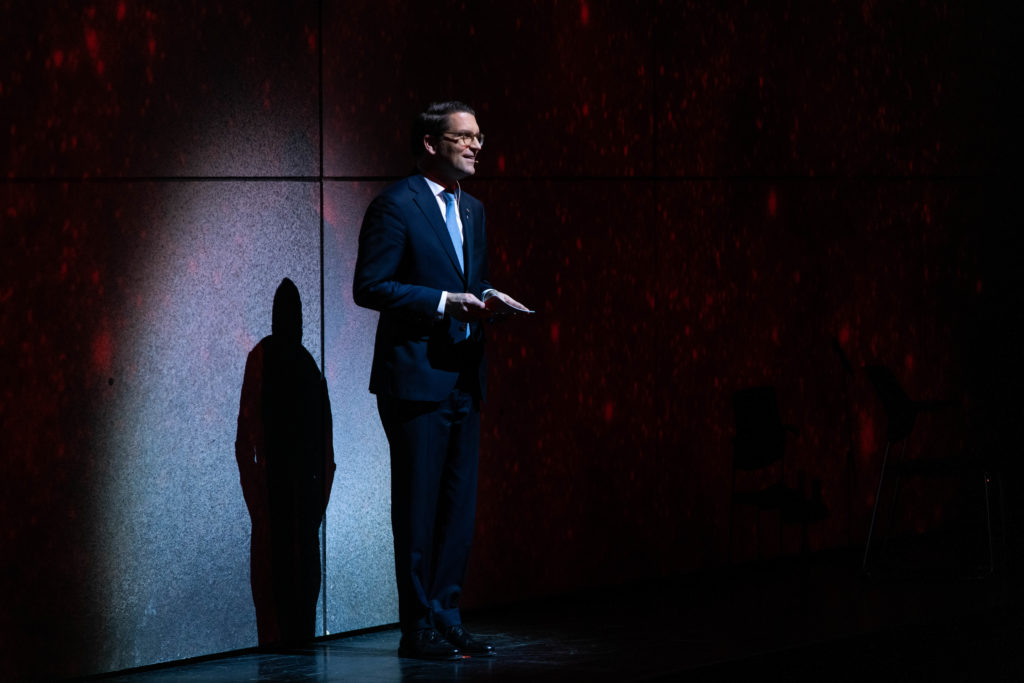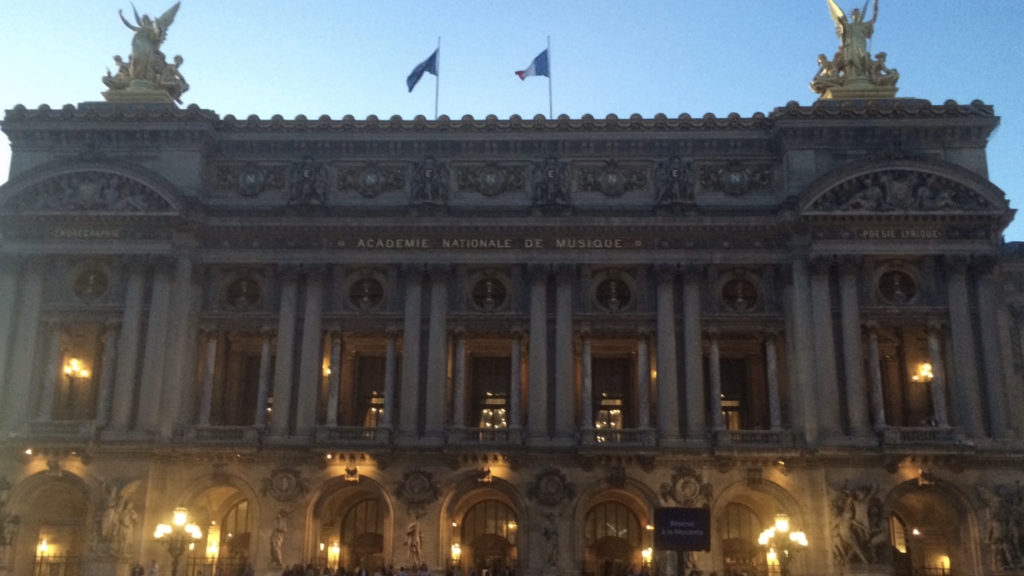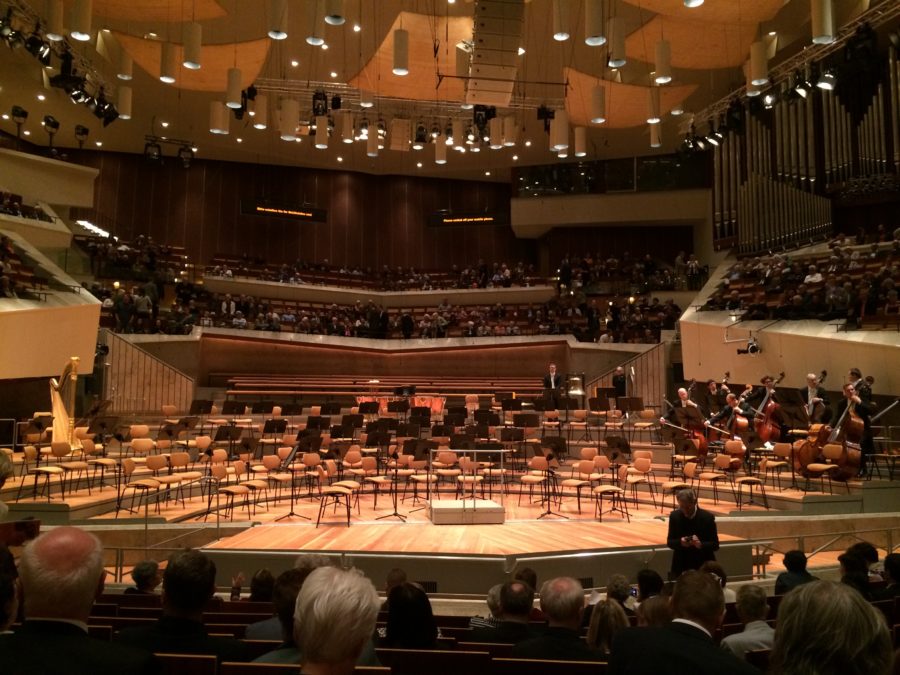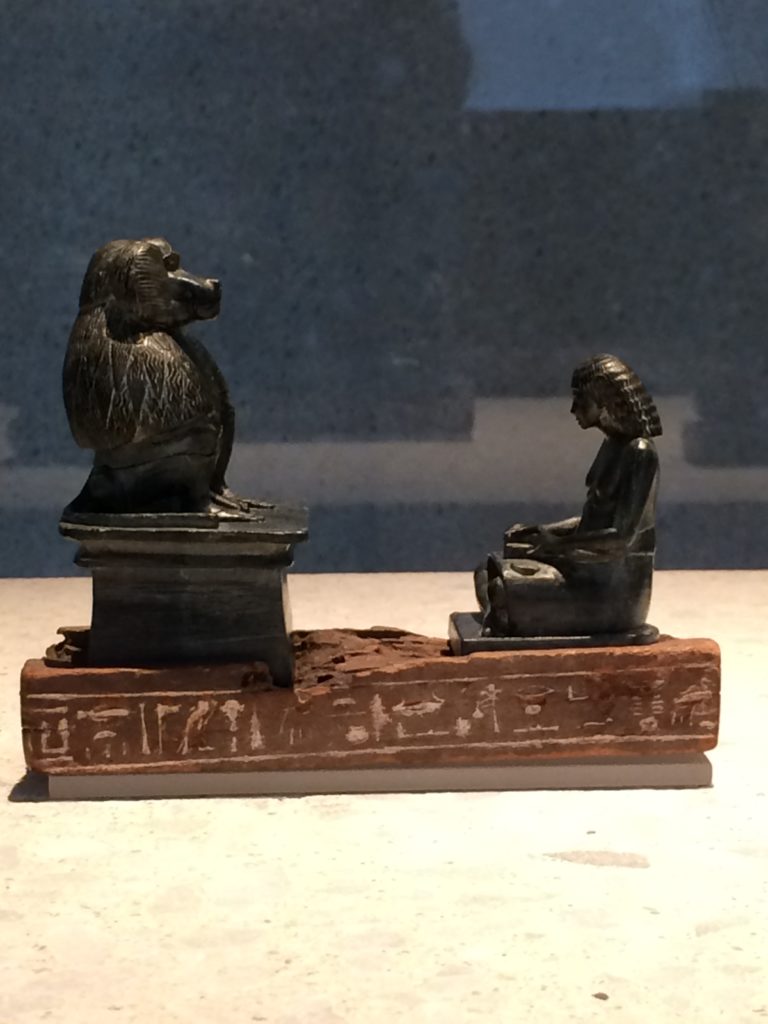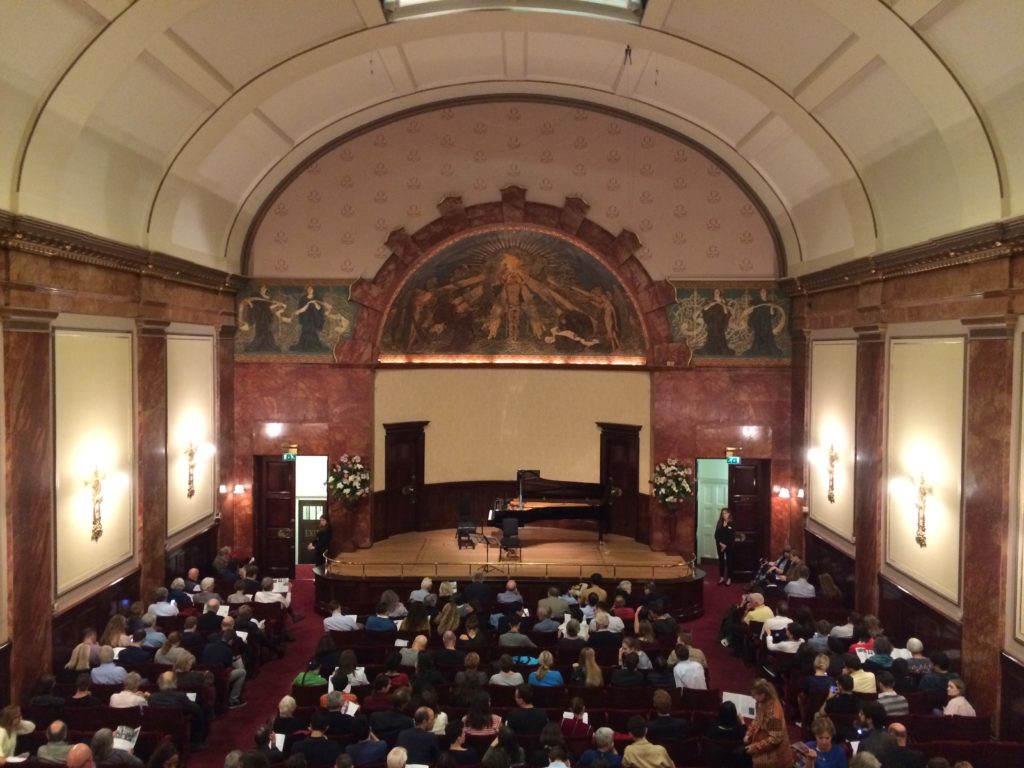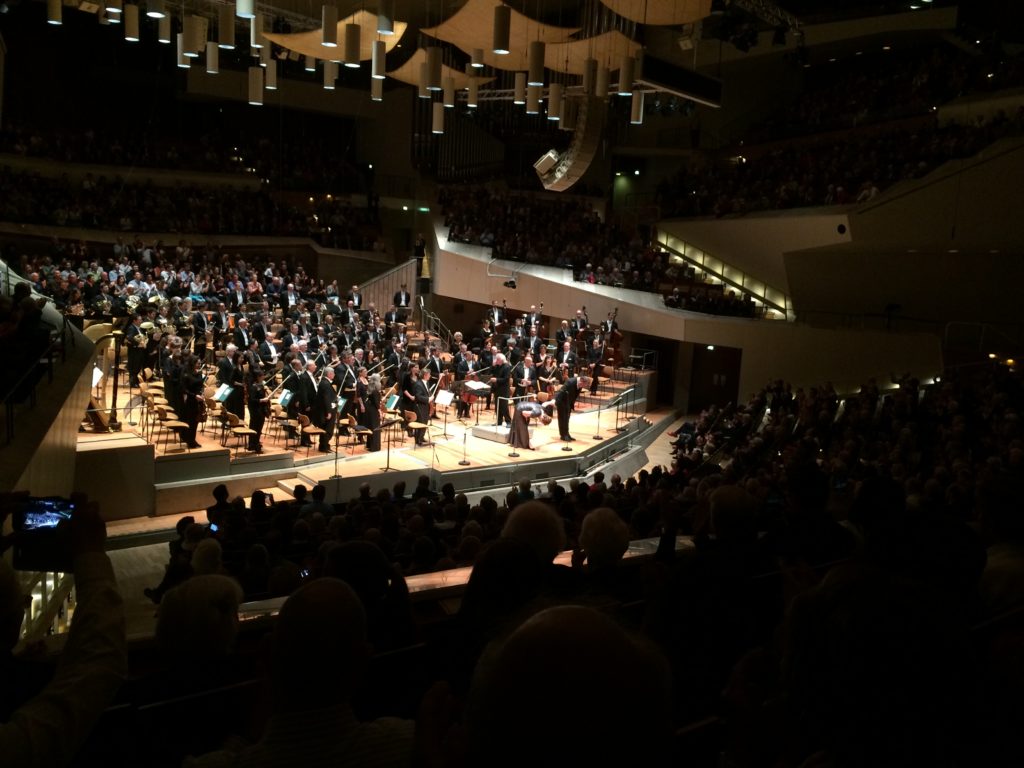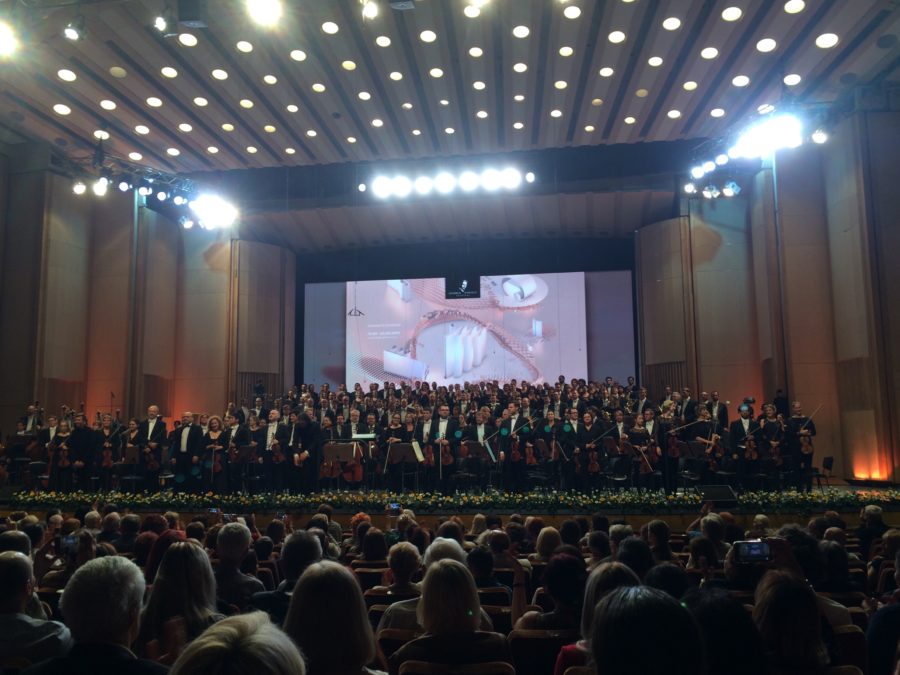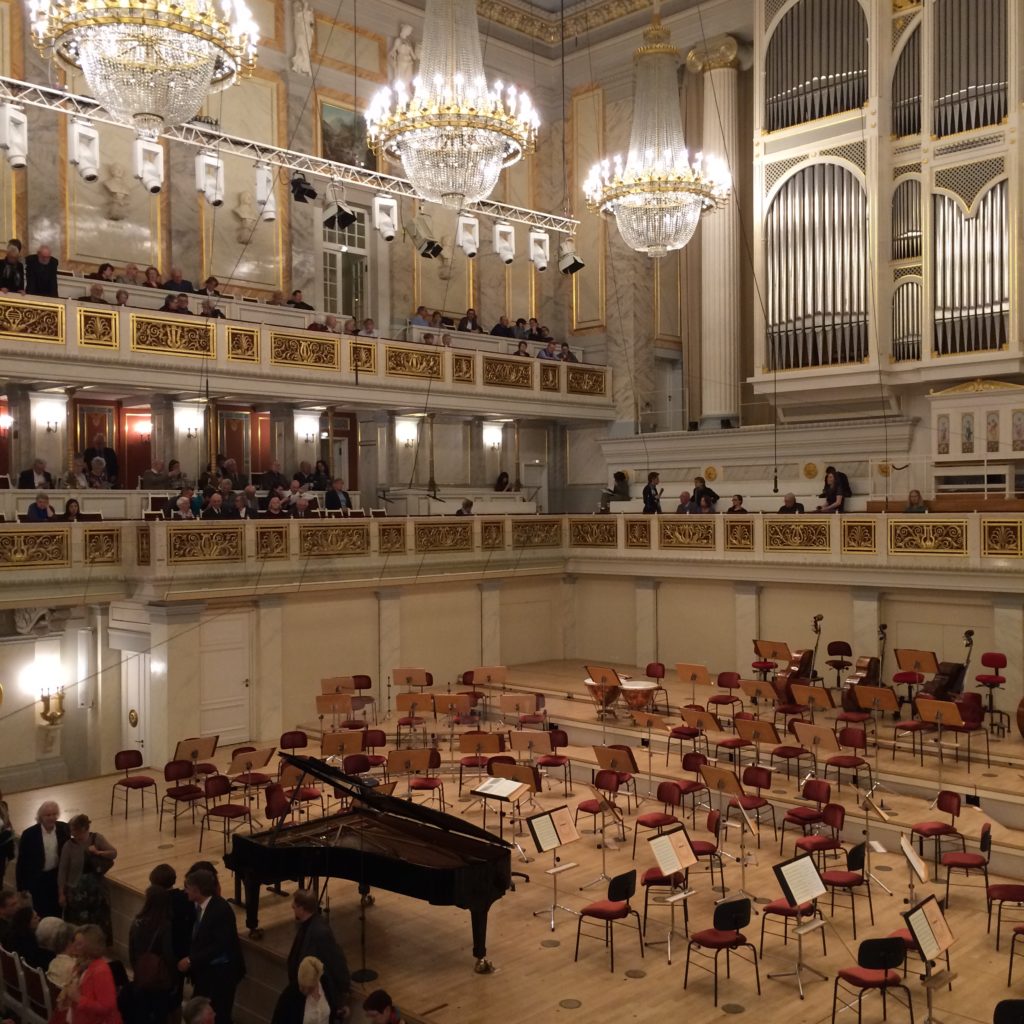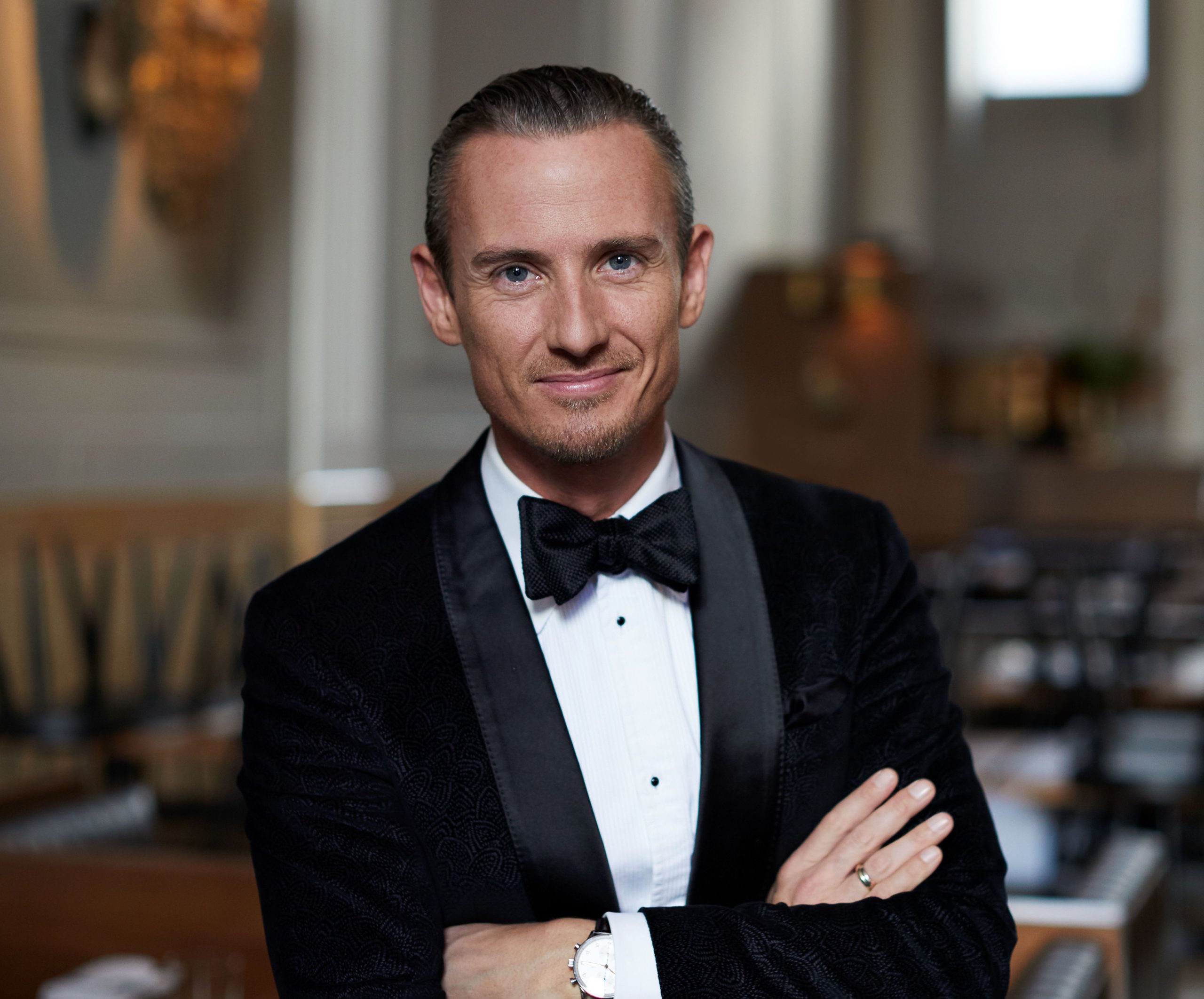
Photo: Rémi Thériault
Alexander Shelley marked his birthday this year in the one spot he probably wants to be more than any other: in front of an orchestra. The Music Director of Canada’s National Arts Centre (NAC) Orchestra and Principal Associate Conductor of the Royal Philharmonic Orchestra is back rehearsing live, with musicians at Ottawa’s Southam Hall, in preparation for the first in a series of live-streamed concerts starting October 17th. Shelley traveled to Ottawa from his native UK in September, having endured the lockdown, like so many in the music world, worrying, wondering, and willing the return of the live music experience in whatever way possible. He is, like his music world colleagues, cautiously optimistic but also clearly anxious to make (and mark) a Canadian return, in Ottawa and then in Quebec, before conducting duties in Luxembourg later this month. November sees more concerts in Ottawa, as well as a date in Germany with baritone Thomas Hampson and bass baritone Luca Pisaroni in a concert with the Würth Philharmoniker and featuring the music of Mozart, Verdi, Rossini, Richard Rodgers, and Irving Berlin.
This hopscotch of music and travel, while normal for many conductors and certainly noteworthy in the pandemic era, is also something of a strong symbol of Shelley’s wide-ranging, some might argue even daring, musical pursuits. He has led no less than 32 world premieres, a list which is ever-growing, and he is just as comfortable performing jazz and pop sounds as he is musical works firmly within the established classical canon. If anything, Shelley’s aim may well be to widen and expand that canon, and his NAC Orchestra programming for this autumn seems like a good underlining of that intent. The group’s first concert will feature works by Canadian and American composers, including Lyric for Strings by George Walker, the first Black American composer to win the Pulitzer Prize for music; the orchestra’s second concert features works by contemporary composers including Marjan Mzetich, Hannah Kendall, and Jessie Montgomery together with Violet Archer’s 1968 work Sinfonietta and Henri Tomasi’s 1956 work Concerto for trombone (the soloist is Hillary Simms, co-founder of The Canadian Trombone Quartet, the country’s first professional all-female trombone quartet). The creative curiosity which marks so much of Shelley’s artistic output did not come about in a vacuum. Hailing from a decidedly creative lineage (his father is pianist and conductor Howard Shelley; he was taught piano by his mum and cello by his grandmother), Shelley’s resume is one that is a living embodiment of The Daily Telegraph‘s assertion of him as “a natural communicator both on and off the podium.” In 2005 Shelley thought up the idea for the 440Hz project in Germany, a concert series aimed to attract younger audiences to classical music; the series included various famous figures from the worlds of German stage and screen, including electronic music duo Blank & Jones, pop acapella group Wise Guys, and soprano Marlis Petersen. That same year he took the top prize at the 2005 Leeds Conducting Competition, which formally launched him onto the international stage and led to his leading a number of orchestras including the Leipzig Gewandhaus, Deutsche Symphonie-Orchester Berlin, Orchestre de la Suisse Romande, and the Hong Kong Philharmonic. In 2009 Shelley was named Chief Conductor of the Nürnberger Symphoniker, a position he held until 2017, undertaking numerous tours and recorded live performances during his tenure. His operatic conducting includes leading works by Lehár and Gounod at Royal Danish Opera, Mozart works at Opera North and Opéra national de Montpellier, Puccini at Opera Lyra (Ottawa), and the 1967 Harry Somers opera Louis Riel at both the National Arts Centre and the Canadian Opera Company. In 2014 Shelley worked with violinist Daniel Hope as part of the album Escape To Paradise: The Hollywood Album (Deutsche Grammophon), together with the Royal Stockholm Philharmonic Orchestra and the Quintet of the Deutsches Kammerorchester Berlin; the album is an eclectic mix of sounds celebrating composers known for their film scores, including Miklos Rozsa, Erich Korngold, Kurt Weill, Hanns Eisler, and Ennio Morricone, and also featured performances by pop star Sting and German crooner Max Raabe.
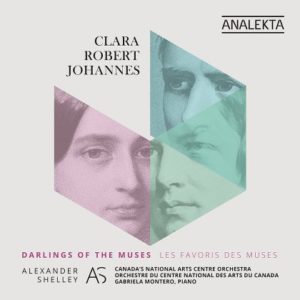
Darlings Of The Muses was released in May 2020 by Canadian classical label Analekta.
Named Music Director of the National Arts Centre Orchestra (NACO) in Ottawa in 2015, Shelley’s highly creative programming has integrated the worlds of dance, history, and contemporary music in a fun and lively if equally educational mix. The orchestra’s 2019 tour to parts of Europe, Scandinavia, and the UK featured the work of numerous Canadian composers and artists, and also encompassed localized community events and learning initiatives along the way. In November 2018 the orchestra performed Britten’s War Requiem together with members of the Bundesjugendorchester (the Germany National Youth Orchestra, with whom he has toured) to mark the end of the First World War. Shelley’s award-winning discography with the NAC Orchestra and Canadian independent classical label Analekta features many works by living Canadian composers (including Jocelyn Morlock, John Estacio, Kevin Lau, and Ana Sokolović) alongside works by Dvořák, Ravel, and Rimsky-Korsakov. Shelley and the NAC Orchestra’s latest album is Clara-Robert-Johannes: Darlings Of The Muses (Analekta), released earlier this year. It is the first of four planned albums which aim to explore the creative and intimate connections between Clara Schumann, Robert Schumann, and Johannes Brahms. Along with Schumann’s and Brahms’s First Symphonies is Clara Schumann’s Piano Concerto in A minor, performed by pianist Gabriela Montero. Gramophone‘s Farach-Colton noted at its release that “there’s an improvisatory quality to Montero’s playing that highlights the music’s florid inventiveness“, which is noteworthy, as it’s a quality that flows through the whole of the album. Montero performs four related (and very beautiful indeed) improvisations based on and inspired by the work of Clara Schumann herself, and it’s these improvisations which cleverly if sensitively bridge the work of Robert Schumann and Johannes Brahms, all three towering figures about whom Shelley himself can speak at length and in great detail, about the smallest details in scoring to broader contemporaneous social concepts, all whilst betraying a clear delight in his subjects and their creative output.
This joyous communicativeness is something that makes Shelley such an engaging maestro and music educator; all the old-school ideas about conductors being cold and heady are swept aside in his friendly, engaging banter. Since the start of his tenure at the NAC he has hosted Shelley Notes, a regular series of engaging concert introductions which contextualize various works performed by the Orchestra. Over the course of the lockdown earlier this year he continued his hosting duties, albeit in altered form, with Musically Speaking, a chat series featuring a variety of figures in and around the classical world; his first guest was violinist James Ehnes, the incoming Artist In Residence with the NAC Orchestra. The conductor and I spoke last month about bringing live music back to a live setting and why that matters, particularly within a North American context, as well as about the wide range of programming the NACO is offering this autumn, and why he feels Gabriela Montero is precisely the right person to appear on the orchestra’s recent Schumann/Brahms album.
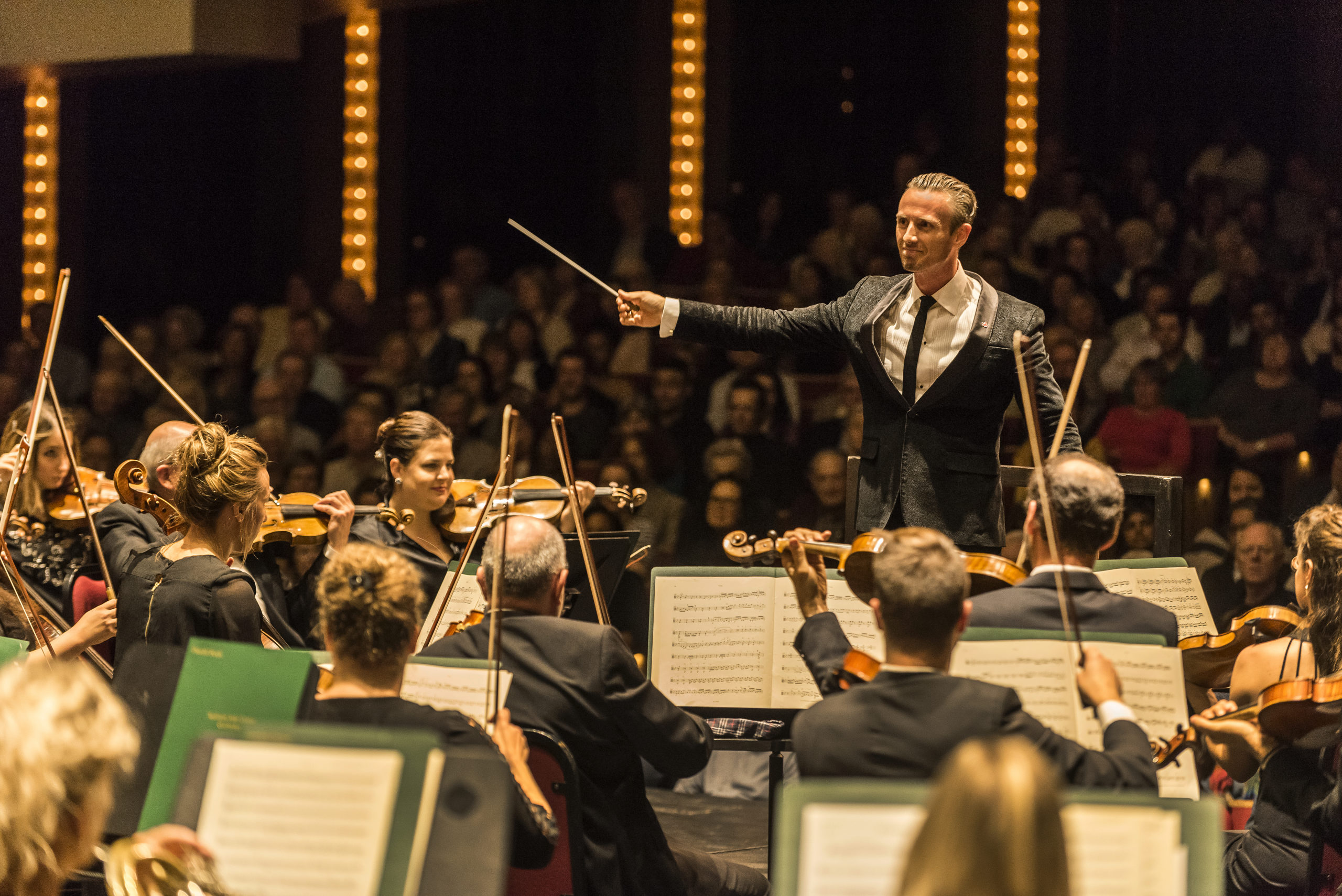
Photo: Dwayne Johnson
How have you noticed differences, traveling between the UK and Canada, in attitudes toward bringing classical music performance back to the stage?
Last season I did concerts on six continents, which was quite an extraordinary experience, and I got to see how different people think and relate to culture; in each country people have a sense that the way they do it is the norm, and I find the same is true during this pandemic. Reading news from Germany and speaking to friends there, and in Austria, Switzerland, New Zealand, Australia, and North America, is that the way different countries are responding and thinking is very different, but everyone is doing the best thing and the most appropriate thing they feel is necessary. In mainland Europe, concertizing came back quite a few months ago. The only dates that remain in my diary apart from NAC Orchestra ones are in Luxembourg and Germany; the ones in Hong Kong and Australia and London are all gone for the fall, and no one can be sure whether they can get audiences in the hall. They’ve found a way in Germany – they have the (infection) numbers more under control – but other countries in the EU are all approaching it differently. Everybody works differently in responding to the numbers they’re seeing in different cities and towns. But in some places, yes, the performing arts are dying because there’s no performances – there’s no revenues, no turnover for audiences coming in. The Royal Philharmonic is seeping money, and the players don’t have any security or support. The things we take for granted, the great institutions we take for granted like The Royal Phil and other orchestras, may really not survive. There’s a fine line between lobbying for them and their continuance – and related to that, offering audiences that all-important catharsis and a conversation about what it means to live through art – and at the same time respecting the public health guidelines. I’m glad I don’t have to run a country and make these very, very hard choices, where you’re stuck between a wall and a hard place.
But that “hard place” seems to be very slowly softening in places; how much do you think your upcoming dates with the NAC Orchestra might be perceived as a broader symbol for the return of live classical culture in North America?
I think I feel like we have a responsibility as a national organization to be trying to serve our audiences. People need music – it is essential. People need the arts. They’re not some added extra once you have everything else sorted out. Humans have expressed the need for culture through millenia; they speak to needs that transcends language by definition, they reach those place words and even concrete thought can’t reach. It’s sometimes a pure sense of being, as all of us who are involved in the arts are well aware. So on the one hand we feel we have a responsibility to reach audiences and serve them, and at the same time, we are in a position to be able to carry on creating content. During the lockdown our musicians were at home but able to quickly pivot to putting stuff out there, and we had a team who worked with the website and social media. We had the #CanadaPerforms movement which was not just classical but featured all genres, and we had artists across the country with a platform there to perform. It was very important something was coming out, that people could hear and see music being performed live. We need to carry that forward now, and we have ambitious plans for the coming months, because we feel the National Arts Centre needs to be serving the nation in any way we can.
So primarily it’ll be streaming, at least initially, though when I say “primarily” our assumption is the largest number of people we’ll reach is through our streaming, but we will be getting the orchestra back together, we will be back rehearsing soon – we’ve made an important pivot with our work here digitally, but yes, the live experience is vital. I spoke to the Friends of NACO when I arrived back in Ottawa, on Zoom of course, and I pointed something out to them which I think every performing artists is very aware of, which is that our performance is different when there are people there, even if it’s 10 people: you perform differently, the experience is different, the sound is different, the actual product is transformed by the presence of people there, live. It is a communal experience in the deepest sense. And just as with any communal experience, the presence of people who partake in it and care about it changes the actual experience. I said flat-out that it’s not just about having people working back in the hall, which is of course nice and good in an economic sense, but it’s fundamentally important to us to not be performing to an empty space but to take music we perform to a direct and live audience and engage in live feedback from those listeners. And that is of course, one of several things that, even if we’re not aware of it, we miss in the digital realm, that immediate feedback, you can sense it even as a listener if you’re watching a concert on a TV screen or computer or cellphone, whatever, but you know you are not offering that actual feedback as part of a performance, so of course you miss it. And all people can do now is plan, but of course changing circumstances mean we may not, but our plan is to start with 50 guests in the hall and, as quickly as possible, ramp that up, so that over the coming months more and more patrons can join us in the hall, and then, fingers crossed, in the new year, we would hope to start getting back to full numbers, but let’s take it one step at a time.
How does that return to live performance blend with your work as the Music Director?
Ever since I’ve worked with this orchestra, I fell in love not only with the ensemble but this model of a national arts institution; it’s vital to keep asking one’s self not only how we can serve our community in Ottawa but to ask what role a such an organization can play in a national sort of way. You can’t have delusions of grandeur – there are so many other wonderful organizations already in Canada who also engage nationally and internationally – but I do think we can ask if there are gaps we can fill. Within the model of funding – the NAC Orchestra’s funding comes directly from the federal government – we ask, how does one respond to such a responsibility and privilege? In many ways I think of it like public broadcasters; you have, at the core of your responsibility, to do those things which are a harder sell commercially – that’s a privilege as well.
Your latest album is very ambitious – how was it conceived? Did you say, “Right, four albums, everything, all of this, off we go” or was it, “Let’s try this and see where it goes” ?
I think there are a few starting points that coalesced. There are lots of stories in music about composers, and you notice people who’ve watched Amadeus feel they have a connection to Mozart, they feel they know more about his music and life – but those of us in the industry are very aware of these stories, and how some stories are more myths than they are accurate. One particularly fascinating triumvirate for me has always been the relationship between Robert Schumann, his wife Clara, and Johannes Brahms. I think many who explored their music and their lives become fascinated by it. Without a doubt, Robert Schumann and Brahms are more household names now, and one could explore the reasoning for that over the centuries; I’m sure there’s an aspect of gender politics in there, but putting that aside for a second and looking at how they were viewed and thought of in their own lifetimes, Clara was, for the majority of the time in which all of them co-existed, the most famous of the three. She was renowned across Europe as one of the great pianists and one of great improvisers; she was known for her composition as well. So she was the artistic character in that triumvirate, the one the two men looked up to and respected, the one from whom they drew inspiration, and I think that’s a lovely story to remind oneself of. It means when you engage with Schumann or Brahms symphonies you are able to connect through to the woman who inspired them, and who also gave them very important feedback and guided them in many ways on their respective journeys. Now if you bear in mind she also had how many children, and ran the household, this was an extraordinary person, the spirit and the energy and talent it took to do all those things, together with the fact her husband was a brilliant man but he was troubled…
Yes, very ill, and she managed that too, and then she met this other brilliant man, Brahms, who was taken under Robert’s wings, with whom she had a deep friendship. It’s one of the mysteries of music history, whether their platonic love for one another was ever consummated; for me it’s unimportant, because their friendship was rather transcendental – how they affected one another was transcendental. After Robert passed, Clara’s musical friendship with Brahms, and the influence she had on him creatively, was fundamental to the history of music and to classical music development, so that story is at the heart of why I wanted us to create this set of albums. On the one hand, the Schumann and Brahms symphonies are core repertoire for this orchestra, it’s work that fits our instrumentation like a glove; we’re a small symphony orchestra or a large chamber orchestra if you will, so the music fits with our precise instrumentation. These two sets of symphonies mirror each other nicely as well; written twenty years apart, they are intimately connected by the two men who played off one another, particularly Brahms playing off Schumann. Both were trying to solve a problem: after Beethoven symphonies, when you had artists like Liszt and Wagner going off in one direction, which was very programmatic, how do you continue in that abstract music vein of writing symphonies? They both offered up solutions over the course of these four symphonic works. Also, between Schumann completing his four symphonies and Brahms starting and completing his one four symphonies, the entire (Wagner) Ring Cycle was written; that’s something which is so interesting for setting the scene, particularly for Brahms’s symphonies, because it helps to explain criticism at the time, that they seemed like chamber music, which is an aspect I wanted us to grab and explore in these recordings.
It’s very palpable, that chamber quality– it’s one not always apparent within other performances. The music of Brahms is often presented in this muscular, macho way…
Two of the reviews, picked up said opening is too fast in Brahms’s First – of course this was a very deliberate choice on my part, there is a tradition of hearing the opening of that symphony as this very heavy, epic, big timpani beat…
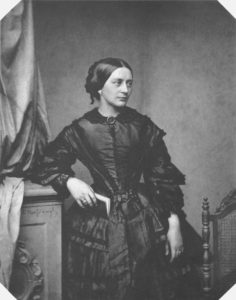
Clara Schumann (1819-1896) in 1857. Photo: Franz Hanfstaengl / Wikimedia Commons
… which is rather macho to my ears…
… like a behemoth! And precisely my reason for setting it in the context of Schumann symphonies and also Clara’s music, which is infused as is Robert’s, with lightness and transparency and with that sonic element of chamber music, is to create context for that intro to the first symphony by Brahms. Yes, it is epic in a sense, because it’s setting the C Minor scene, and just like Beethoven’s Fifth Symphony takes us from C Minor to C Major over the course of the symphony – so it’s a big journey. I was hoping listeners would understand the point that he, Brahms, was not coming from the music that was written after him, that great late Romantic music and epic statements; he was coming from Robert Schumann and Clara Schumann, he was coming from that chamber setting, from that sense of every line being equal, and of not wanting to over-egg the Romantic aspect at potentially the cost of the Classical architecture and line.
So I wrote in the notes about it, that it’s a very deliberate choice, and I hope there will be listeners who appreciate this perhaps different perspective. We have lots of recordings where it’s that big epic sound, but there’s also a take on it where it isn’t that – and, at the center of this cycle, is Clara herself. In this first album (of the series), I wanted us to present her biggest orchestral statement, which is also her Concerto statement. It’s the biggest work she wrote for orchestra; she wrote the last movement when she was thirteen years old, and in the years following she filled it out to a three-movement Concerto which she premiered with Mendelssohn conducting and the Leipzig Gewandhaus playing. The idea she was some “lost talent” isn’t true – she was highly respected in her time. Can you imagine a fifteen year-old girl performing, with Mendelsohn, her own Concerto?! That’s the level of appreciation we’re talking about in her time.
Why did you choose Gabriela Montero to play the music of Clara Schumann?
If I think of all the pianists on earth living now, who for me most embody who Clara Schumann was, it’s Gabriela Montero: she is a consummate improviser, she’ a composer, a virtuoso, a mother, she is all the things Clara was and is, and that she was able to join us and interpret this piece, is very special. This all connects back to when things were very different to what they are now in terms of concert performance – it would be completely normal when Clara performed a concert to perform a piece of her own and then do improvisations, and play a piece by Robert, and improvise, and then Mendelsohn, and so on. The same thing applied in big orchestral concerts, so I wanted us to get a sense of that philosophy. I asked Gabriela if she would improvise for us in the spirit of Clara as she feels her, and as you know, Gabriela is one of the great improvisers of our age, so she sat onstage in Southam Hall and improvised for an hour, and we selected a few of those to connect from the Concerto into Brahms’s First Symphony. It’s a proposition which, for many listeners, will be new and different, and is in keeping with the spirit of the age.
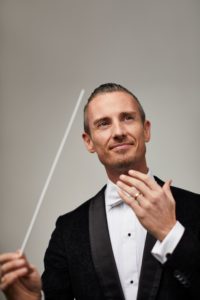
Photo: Rémi Thériault
Your contextualizing makes it approachable but still very intelligent. Speaking of contextualizing music, will you be doing more online artist chats?
Absolutely. We’ve put together what I believe is programming that speaks to the time we’re living through. I think we all watched not only COVID happening but concurrent to that, all the cultural conversations around identity and voice, and it would’ve felt very strange to us, to have come back and just done a Mozart or Beethoven concert without thinking about what responsibilities we have as a national organization. I wanted to program differently, and try to engage with audiences nationally and internationally, so each 90-minute concert will feature two next-generation Canadian artists; they’ve had hurdles put in their way and over the next season or two, it will certainly be more difficult to travel and be seen, and they need to be given opportunities to perform on a big stage and to grow, to be heard. I’ll be speaking with them, or a member of the orchestra may do, so there will be a platform to get to know them. We’re going to feature Canadian and American composers, living and not, with an emphasis on brilliant contemporary music, and still have so-called traditional names, like Mozart and Prokofiev and Chopin, but the focus will be on composers who are perhaps new names to some, but who are brilliant and deserve this platform. It’s been concerning all of us, can big cultural institutions respond to these conversations? And I don’t see why we can’t, or shouldn’t, especially right now. There’s difficulty and challenge right now but also opportunity – even those people who didn’t realize how much they needed live music now realize how important it is in life.

